#the dichotomy of duty and individual happiness
Explore tagged Tumblr posts
Text
Nueng, the only son and heir of a mafia family, loved and nurtured and sheltered his whole life while acutely aware that his future is a foregone conclusion telling Palm, the boy who has had to work all his life, with a future that was as uncertain as the choppy waters he loves so much until his father signed his life over to protect another's son, that no one owns his life, does things to me.
#mostly makes me scream into my pillow#and post my incoherent thoughts here#but can you blame me#thinking about fathers and sons and legacies#the way fathers fuck up their sons' lives and minds#we see it with ben and chopper too#ugh i could write a novel about chopper#the dichotomy of duty and individual happiness#these teenagers screaming into the horizon for god to keep them safe while their own family hurts them in unimaginable ways#the way chopper and palm have so much compassion for others despite their families abandoning them#and despite the unfair hierarchies that structure their lives#crying brb#never let me go the series#got me in a chokehold#never let me go
22 notes
·
View notes
Note
I'm glad I'm not the only 1 that felt that way. There's also a Stars ep from the 90s ver with this issue. Mina joins a idol competition and 1 of the starlights is all "what abt ur mission?" Mina WINS and puts the letter away and I was so sad for her. Her dream was SO close but she couldn't achieve it because she had to be a guardian.
UGH, I KNOW. And remember that episode in the S season where she had to give up playing on her school's volleyball team, which she loved? That's not even touching the end of the Sailor V manga, where Adonis/Kaitou Ace predicts that Minako will always, always choose duty over love and thus her love life will always be cursed. Like give my queen something, for fuck's sake!!
@bismuthwisdom said this in the tags of my initial post and I totally agree: the "tragic duty-bound Senshi" thing already happened in the Silver Millennium. Wasn't being able to live normal, happy lives the entire point of Queen Serenity sending her court to be reincarnated? Why are they once again being forced to choose between their duty and their dreams/passions/relationships?
It just rubs me the wrong way. I feel like it would have been much more impactful to have the Senshi reject the dichotomy of "Sailor Senshi OR individual with dreams and passions of their own" and embrace both.
Also, I'm probably reading too much into it, but it reminds me of how women are so often told "you have to choose between having a family or having a career! You can't have both!" as if working mothers haven't been juggling those roles for centuries. Not to mention fathers are never given that dichotomy; it's just assumed that they can easily be both fathers and businessmen/politicians/etc.
27 notes
·
View notes
Text
Thoughts on Aegon III, his character flaws, and his relationships with Viserys and Daenaera:
(Note: this is all just my personal headcanon and interpretations. You may disagree, and that’s totally fine. There’s a lot of leeway in how to read these characters given the lack of POV stories and info on the post-Regency years.)
So, first to be clear— I love, love, love Aegon III. He’s my favorite Targaryen, I think he is a good man and a good king, and I empathize with his situation a lot. But it’s interesting to consider the darker side of his relationships, and how his experiences in the Dance affect his ability to connect with others. He’s such a fascinating character, and while I like the fluff of his family dynamic (and think there was a lot of mutual love there, with his siblings, Daenaera, and his kids), I love all the rich angst there is to read into it as well.
So that being said, in my opinion Aegon’s greatest flaw (at least when it comes to his personal relationships) is his lack of consideration and understanding for the emotions of others. Not a lack of care— Aegon cares deeply and wishes for his loved ones to be safe and happy— but rather a failure to recognize others’ emotional needs. I think this results from Aegon drawing a false dichotomy between himself and others. Aegon suffers from PTSD and depression, but he lives in a world that lacks the support or even the terminology help him understand and process his mental health issues. As such, he considers himself to simply be a broken individual. He is broken, while others are whole. And so in Aegon’s mind, everyone else is far happier, more put together, and more resilient than he is. Which, to be fair, is not entirely inaccurate, but I think this manifests as Aegon assuming that what people appear to be on the surface is how they truly are. He never smiles unless he is happy— so anytime anyone smiles, he assumes they are happy. If he is struggling, he shows it, through retreating into himself, hiding in his chambers, anger, panic attacks, etc— so if someone isn’t showing such behaviors, he takes it to mean they aren’t struggling. Aegon may understand in his head that people can put on an appearance, but I think he still underestimates to what extent that can hide their true feelings.
As such, I think Aegon is a man who is not in tune with the needs of people around him. He is very much centered around himself and his own emotions. This can lead to him being very casually cold or cruel without realizing it. Of course, when it comes to people not in his inner circle, he simply does not care— he knew he was being rude in his dismissal of Torrhen Manderly, that he’s cold to the lords of his court, but their feelings don’t matter to him, as long as they do their duties to the realm. But I think this can also leak into the way he interacts with the people he does love and care for— his siblings, his wife, his children. Aegon does not wish to cause them any hurt, and is quick to apologize, take accountability, and attempt to do better if someone tells him that he did something to upset them. But that’s the thing — you have to tell him. Because Aegon oftentimes will not realize on his own.
While both Viserys and Daenaera understand this about Aegon, Viserys has a much easier time dealing with it. This is due both to their personalities but also how they are raised.
Viserys is a very practical and assertive man. During his time in Lys, he had to grow up fast in an attempt to earn the respect of the Rogarres and older wife Larra, who was a very judgemental young woman. He did not wish to be seen as a sullen or emotional child, but rather a proper mature husband. So he learned not to take things personally, to be very direct with his thoughts, and above all to not be needy. As such, he has an easy time applying these traits to his relationship with his brother. If Aegon does something that bothers him, he will simply tell him, and Aegon is pretty good about apologizing and at least temporarily changing his behavior. Knowing this, Viserys is not sensitive to Aegon’s unconscious cruelty or casual indifference, often time just brushing it off as Aegon’s nature and not something to be offended by.
Daenaera on the other hand, was taught since she was a little girl that it is her job to care for and support the king. As a woman, she is expected to do the emotional labor of her marriage. This isn’t an expectation that was placed upon her by Aegon, but rather by the sexist and patriarchal society in which she was raised. While all women in Westeros face such an expectation, this is especially true of a woman who was Queen since age 6. She also is naturally a more sensitive and gentle individual than her brother-in-law. As such, while Daenaera knows that the best way to deal with Aegon is to simply be direct and forcefully honest, she really struggles to do so. She has been taught to suppress her emotional needs and to not put such burdens on her lord husband. With another more emotionally intelligent husband, this may not have been such an issue. But Aegon being Aegon, will not pick up on or give thought to her needs, and Daenaera feels she should not bother him with them. This is the biggest divide in their marriage, and Daenaera often feels resentment towards Aegon for not being anywhere near as present and attentive towards her as she is towards him. She feels guilty for this as well, thinking it unfair of her to hold resentment towards Aegon when she has not properly communicated with him. She also sometimes feels selfish, since her own issues and traumas are so minor compared to Aegon’s. (To be clear, this is how Daenaera feels about herself thanks to the gender roles of her society, not how I feel about her).
(Though, one area where this isn't an issue is when it comes to intimacy-- as someone who is extremely touch averse himself, Aegon is very cognizant of any indication of discomfort from Daenaera).
The issue has been brought up to Aegon, demurely by Daenaera and more forcefully by Viserys. And for a time, Aegon does try to be more attentive to his wife’s emotions… but eventually falls back into his old ways. In truth, Aegon does not see why it is an issue— to him, if he upsets Daenaera or she wishes something from him, she need only tell him and he will oblige. Same with the others in his life. He feels it is difficult enough for him to deal with his own issues and emotions, and he cannot be expected to also constantly interpret and deal with those of everyone around him. (Aegon does not realize to what extent Daenaera has always done this for him).
Anyway, those are some of my thoughts. I think the relationship of these three is so interesting, because there is no "bad guy" in any of this. Everyone is coming from an understandable place, everyone is trying and cares for each other. But they are all victims of their circumstances and the society they live it. Aegon was put through horribly traumatic experiences and is left to try to deal with the mental effect this has had on him, with no real understanding or guidance. Daenaera was married off at age six, taught by her society to play the dutiful wife and put her husbands heavy emotional needs before her own without complaint. Viserys may deal well with being a source of support for Aegon, but he is not superman-- he's running the realm, trying to help his brother, raising his children, being the face of the Targaryen dynasty that everyone looks to, trying to save the dragons, being a source of support for Daenaera, keeping the lords of the realm in line, dealing with his own trauma and grief, juggling so many balls that one eventually is going to drop (spoiler: it's his children). These are three kids who were forced to grow up so fast, they've never been able to rely on the adults in their life, their only support and trust is each other. And maybe they don't always handle everything perfectly, but damn they are trying their best. They are always trying their best.
#aegon iii targaryen#viserys targaryen#daenaera velaryon#aegon iii x daenaera#fire and blood#character analysis#love these kiddos so much they are so dear to me#sweet children trying their hardest#fuck the greens fuck unwin peake fuck lysandro rogare
31 notes
·
View notes
Text
I can't say I'm terribly surprised by (some) of the reaction to this episode.
There's a contingent of fans that one (or more) of the characters and ships.
But trying to apply a dichotomy of who is right and who is wrong really fails to get a bunch of points.
Yang, Blake, and Weiss acted according to how they were brought up and socialized. An excellent post by phoenix-fells gets at what Yang is doing. And this post by bumblebyaf gets at how much Ruby has actually been through it.
Ruby likely has some in-universe PTSD at this point because... I mean... look at what she's been through? Ruby has BEEN THROUGH IT and hasn't had much in the way of support.
As a character-building moment, I am all in for it and I was happy that she finally got to be angry and vent her frustrations. Was logical? Of course not. But it was EMOTIONAL. And she's has had to mask her true feelings or just bury them because she's the leader of Team RWBY, she's the one everyone depends on, she's a huntress, she's the one everyone must count on.
If there's any group or individuals in the series that are wrong and have failed all them, especially Ruby, it's the fucking adults. From TaiYang's emotional shutdown (as someone who lost a parent before I was a teenager and saw first hand what that'll do to one's spouse, I can sympathize and understand. Still doesn't make it right, still has a ton of negative consequences), to Ozpin making her the leader despite being 15 while Weiss, Blake, and Yang are 17, to Ironwood's general misguided evil-for-the-greater-good strategy of killing anyone/letting everyone else die to save his piece of the world, to the other older Hunters and Huntresses just treating them as equals and not realizing they might be licensed but they still some maturity and guidance and support. Ruby, sometimes, got that from Qrow. Sometimes. Most of the time, she's had no one to vent to, no one to really show vulnerability to, no time to be vulnerable (even by herself).
"But Val," you say, "she had that opportunity after the fall of Beacon and immediately formed a new team with Jaune, Ren, and Nora. She's HAD the opportunity to at least take time to herself and mope." Did she? Did she really? Or did she act exactly as what was expected of her by everyone else that was still around? Did she think she probably owed it to her now scattered and broken-up team to try to salvage something? She might have had a choice at the most basic level. But given her personality type, her own beliefs on duty, I don't think she really DID have a choice. And again, she bottled up the grief and sadness, and kept going despite the fall of beacon, the death of Pyrrha, and the first death of Penny from earlier.
Ruby is going to feel guilty and horrible about what she just did. It's going to add to her breakdown. It'll be interesting to see if the writers draw from the Volume 4 (boo-hiss, I know) episode where Yang has to work through her trauma.
Ruby's ascension is going to be the most interesting. What aspects of her will change? What kind of leader will she be going forward? Yeah, I still see this being the case, the show IS called RWBY.
But yikes on the some of the reaction. For all the criticism that Ruby has developed the least by virtue of her role in the story, it was clear that the writer's have been setting up her breakdown and growth and we're finally getting it. After all, if you want to learn, you have to suffer.
#RWBY#Web Series#Spoilers#RWBY Spoilers#RWBY 9#RWBY Volume 9#Val rambles on fandom things#Dipping my toe into the FNDM#If you read this#I appreciate it even if you disagree
362 notes
·
View notes
Text
The ATLA Comics and the Character Assassination of Zuko’s, Aang’s and Katara’s character arcs (in one page!)

Thank you to Emma/jerkbendinq on Twitter for providing me this image!
Look. I knew the ATLA comics were bad. I’d heard, per example, about what they’d done to the Southern Water Tribe. And, especially, the glorification of industrialization in a world where bending exists, which leads to Northern Water Tribe imperalism and colonization. Others have talked about this in depth and have the tools to talk about these topics.
But THIS! THIS I want to talk about!
Let’s start with this. I know nothing about the context of this scene. But I don’t need context. Because there is SO MUCH TO UNPACK HERE.
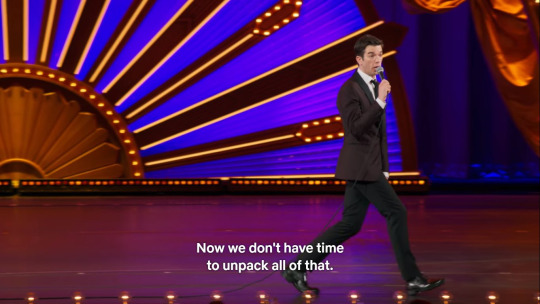
But we do, John Mulaney.
Oooooh, but we do.
I have too much time on my hands.
I felt so viscerally pissed when I read this that I decided to write this meta.
So here we go.
Let’s analyze this. Line by line.
Zuko: If you ever see me turning into my father, I want you to... I want you to end me.
Aang: What?!
Up ‘till now, not that bad. Aang’s character’s integrity is kept intact for the moment. Remember the pacifistic monk who didn’t want to kill Ozai? I think he’s here in this reaction.
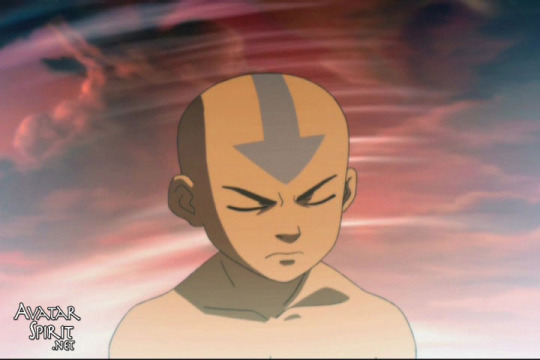
Aang: No, I'm not gonna end it like this.
All right.
But the emphasis on the words end me make me really uncomfortable. This doesn’t feel like Zuko talking. Somehow, these words feel like they could fit more coming out of Azula’s mouth than anyone else’s.

Azula: You mean it’s not obvious yet? I’m about to celebrate becoming an only child!
But we’ve barely started.
Let’s continue to the next panel.
Zuko: Even now, after everything that’s happened, my family’s legacy is still a part of me.
I’M SORRY??!?
Is this somehow a bastardized version of this scene from The Avatar and the Firelord??!?
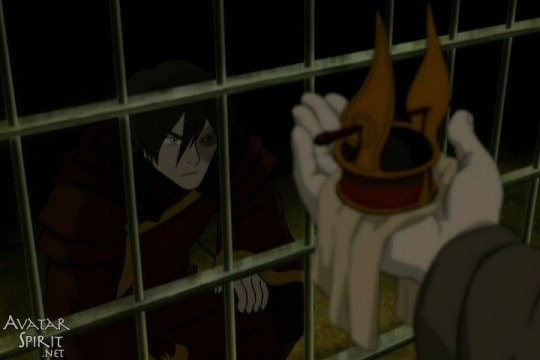
Iroh: Because understanding the struggle between your two great-grandfathers can help you better understand the battle within yourself. Evil and good are always at war inside you, Zuko. It is your nature, your legacy. But, there is a bright side. What happened generations ago can be resolved now, by you. Because of your legacy, you alone can cleanse the sins of our family and the Fire Nation. Born in you, along with all the strife, is the power to restore balance to the world.
(I don’t particularly like this dichotomy either. Good and evil aren’t battling within Zuko. It’s his struggle between doing the righ thing and doing the wrong thing that is. But whatever. I’ll let THAT slide.)
What happened to the “bright side” in the comics?? What happened to the power Zuko has within himself to restore balance to the world?? His entire character growth somehow doesn’t matter anymore because of his father’s and his forefathers’ legacies? The “good” in him doesn’t matter anymore??
What happened to THIS scene?!
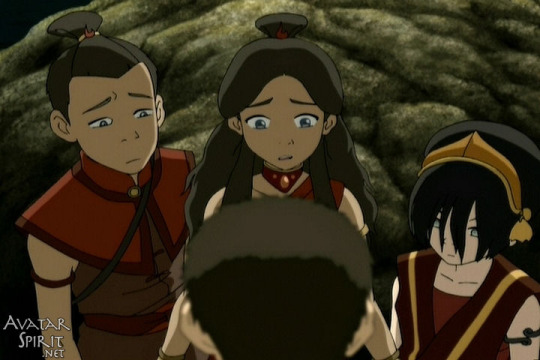
Katara: You mean, after all Roku and Sozin went through together, even after Roku showed him mercy, Sozin betrayed him like that?
Toph: It's like these people are born bad.
Aang: No, that's wrong. I don't think that was the point of what Roku showed me at all.
Sokka: Then what was the point?
Aang: Roku was just as much Fire Nation as Sozin was, right? If anything, their story proves anyone's capable of great good and great evil. Everyone, even the Fire Lord and the Fire Nation have to be treated like they're worth giving a chance.
Or this?!
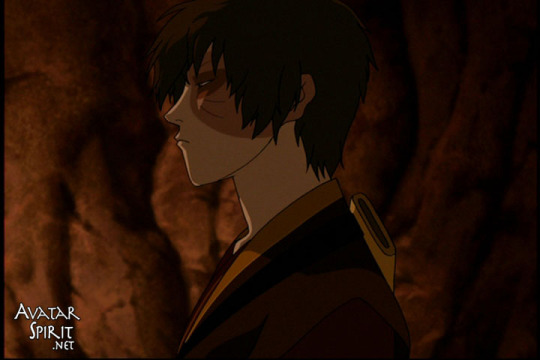
Zuko: For so long, all I wanted was for you to love me, to accept me. I thought it was my honor I wanted, but really, I was just trying to please you. You, my father, who banished me just for talking out of turn. How could you possibly justify a duel with a child?
Ozai: It was to teach you respect!
Zuko: It was cruel! And it was wrong.
Ozai: Then you have learned nothing.
Zuko: No, I've learned everything! And I've had to learn it on my own! Growing up, we were taught that the Fire Nation was the greatest civilization in history. And somehow, the War was our way of sharing our greatness with the rest of the world. What an amazing lie that was. The people of the world are terrified by the Fire Nation. They don't see our greatness. They hate us! And we deserve it! We've created an era of fear in the world. And if we don't want the world to destroy itself, we need to replace it with an era of peace and kindness.
What happened to Zuko’s stand against Ozai during the Day of Black Sun?? What happened to Zuko’s entire character arc from Book 2 onwards?? Suddenly, because he has his father’s blood in his veins, he’s doomed to carry his legacy? What happened to Zuko creating his OWN destiny, to change the world??
Sigh.
This wasn’t the most insulting line in that entire paragraph, though.
THIS WAS.
Zuko: That’s why it’s my duty to heal the scars that the Fire Nation has left on the world.
I BEG YOUR PARDON?!?
NOTICE THE EMPHASIS I PUT ON THE WORD SCARS?!?
They keep comparing Ozai with Zuko THIS ENTIRE TIME. He’s terrified of failing the Fire Nation. He’s terrified of failing the world. He’s terrified of failing Aang and the Four Nations.
Zuko is terrified of becoming his genocidal abusive father.
AND SUDDENLY THEY BRING UP SCARS??!?
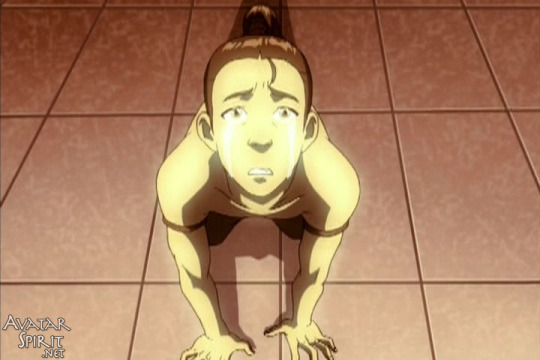
SCARS??

FUCKING SCARS???!?
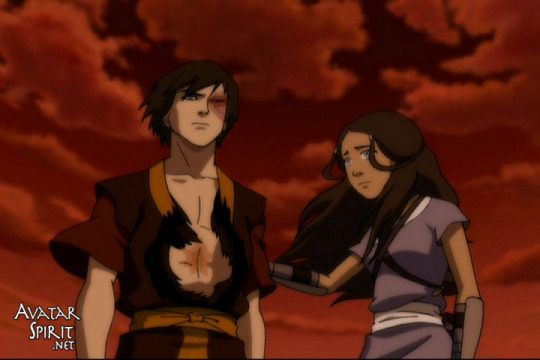
(But we’ll come back to Katara.)
Let’s keep going or I’ll combust on the spot.
Zuko: But the Fire Lord’s throne comes with a lot of pressures.
Two things about this line.
First of all. It... bothers me that Zuko uses the term “the Fire Lord’s throne” instead of “my throne”. It’s like he still hasn’t accepted he’s the Fire Lord. Zuko’s throne doesn’t feel like it belongs to an individual who is allowed choices in this scene. It’s like he believes he’s all the Fire Lords who were his predecessors. And knowing that he thinks he carries his family’s legacy like a weight on his shoulders... that doesn’t bode well.
And second of all. Where is Iroh in all of this? What happened to Iroh’s mentorship? His kind words to remind Zuko that he can rake control of his own destiny? Is he still in Ba Sing Se? Taking care of the Jasmine Dragon? Has he completely left Zuko alone, enough so that the only person he can ever confide in is Aang, who has Avatar duties to fill?
What happened to this?

Iroh: You know Prince Zuko, destiny is a funny thing. You never know how things are going to work out. But if you keep an open mind, and an open heart, I promise you will find your own destiny someday.
Or this??

Iroh: I was never angry with you. I was sad because I was afraid you lost your way. And you did it by yourself. And I am so happy you found your way here.
(Can anyone give Zuko a hug?? Please??)
Or even THIS??
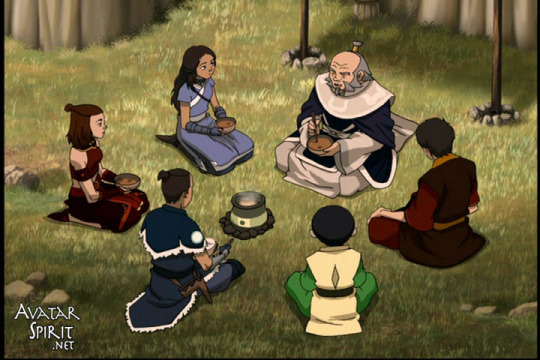
Iroh: No. Someone new must take the throne. An idealist with a pure heart and unquestionable honor. It has to be you, Prince Zuko.
Zuko: Unquestionable honor? But I've made so many mistakes.
Iroh: Yes, you have. You've struggled; you've suffered, but you have always followed your own path. You restored your own honor, and only you can restore the honor of the Fire Nation.
Oof. Okay. Let’s keep going.
Zuko: And if I’m being honest with myself... I need a safety net. The world needs a safety net. That’s what I need you to be, Aang. The safety net.
Again. Two things about this line.
What does Zuko mean when he says “the world needs a safety net”? What does he think ending him will accomplish for the world? Zuko’s DEATH could leave an opening for Ozai to take the throne! Because again, Aang has refused to kill Ozai in cold blood! As Iroh has said MULTIPLE TIMES by now and as Zuko has said himself, HE CAN RESTORE BALANCE TO THE WORLD TOO. It doesn’t all revolve around Aang.
Speaking of Aang, here’s the second thing. Of course, Aang is the Avatar. But he himself alone couldn’t end the war during Sozin’s Comet. Zuko and Katara, Suki and Sokka and Toph, and the Order of the White Lotus all participated. Why should Aang be the only one to take this godawful decision? Why??
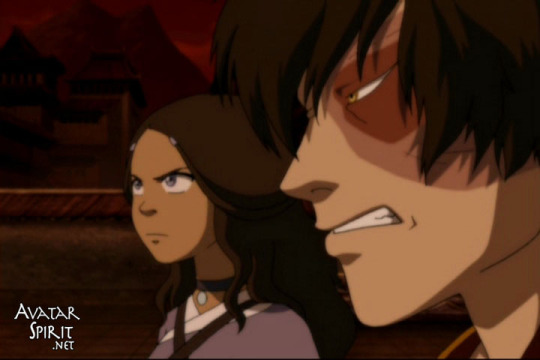
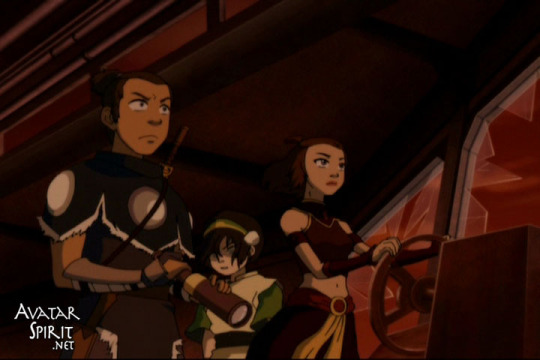

What happened to cooperation?? What happened to the Four Nations working together to end the Hundred Year War??
On to the next line.
Aang: Zuko, you're not your dad! And you're my friend! How can you expect me--"
One more time. Two things about this scene.
First of all, I’m going to be sarcastic, here. Forgive me, but I have to.
Thank you, Aang, for pointing out that Zuko is NOT his father and that YES, you ARE his friend.
Let’s go back to Aang’s speech at the end of the Avatar and the Fire Lord.

Aang: And I also think it was about friendships.
Toph: Do you really think friendships can last more than one lifetime?
Aang: I don't see why not.
Sokka: Well, scientifically speaking, there's no way to prove that...
Katara: Oh, Sokka, just hold hands.
If friendships can last more than one lifetime... why do you have to remind Zuko that you’re his friend, Aang? At least you’re not considering downright killing him and you don’t want to do this, you know!
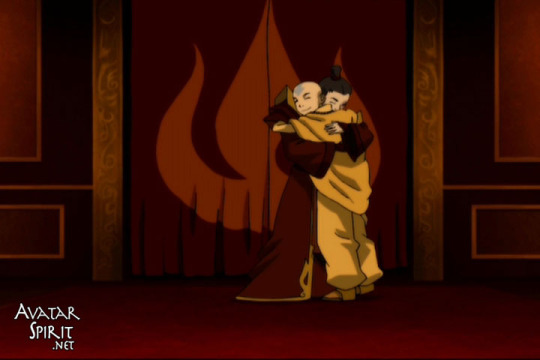
Does that mean that if he wasn’t your friend and that if he was like Ozai, you’d kill him, though? Is that what you’re trying to say? Because the LAST time you were confronted with the idea of killing someone who WAS LIKE Ozai, oh no wait, who WAS Ozai, you said this!
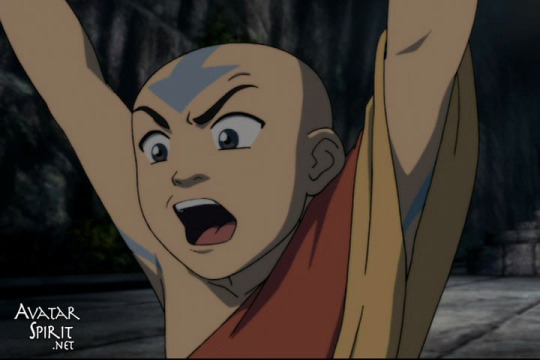
Aang: This isn't a joke, Sokka! None of you understand the position I'm in.
Katara: Aang, we do understand. It's just ...
Aang: Just what, Katara? What?
Katara: We're trying to help!
Aang: Then, when you figure out a way for me to beat the Fire Lord without taking his life, I'd love to hear it!
What happened to that?
Hm?
Next line. Once again.
Zuko: As your friend, I'm asking you -- if you ever see me go bad, end me. Promise me, Aang.
Again with these characters having to remind each other that they’re friends! Do you stop being friends while travelling the world and have to remind each other that you’re friends once you meet again? Is that it? (/s)
But that’s not what’s bothering me about this line.
What has Katara said since the beginning of this page?
Absolutely. Nothing.
And this line simply states that Aang is Zuko’s friend. But what about Katara? Are they still friends? They don’t interact much. She barely looks at him this entire page. They don’t talk. This whole scene is about Zuko and Aang. What is Katara doing here? Why is she here?
Oh. Wait.
The ONLY THING Katara does in this entire page...
When Aang looks at her, wondering what to do...
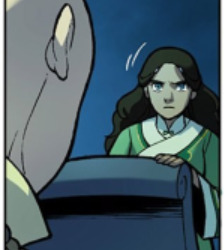
SHE NODS.
SHE. NODS.
She gives Aang the push in the right direction to... wait for it...
MURDER ZUKO WITH HIS BARE HANDS!
Is this supposed to be a callback to THIS scene??

Katara: You might have everyone else here buying your ... transformation, but you and I both know you've struggled with doing the right thing in the past. So let me tell you something, right now. You make one step backward, one slip-up, give me one reason to think you might hurt Aang, and you won't have to worry about your destiny anymore. Because I'll make sure your destiny ends... right then and there. Permanently.
Then what happened to this??
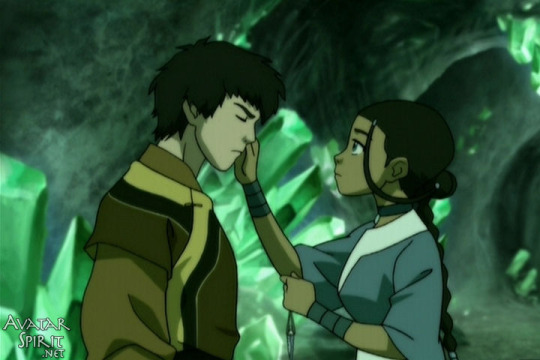
Or this???

Katara: I didn't forgive him. I'll never forgive him. But I am ready to forgive you.
Not only is it that KATARA AGREES TO MURDER ZUKO, she does it while being ENTIRELY SILENT. She never talks. She only nods. Katara has been reduced to become Aang’s silent advisor.
What happened to THIS girl??!
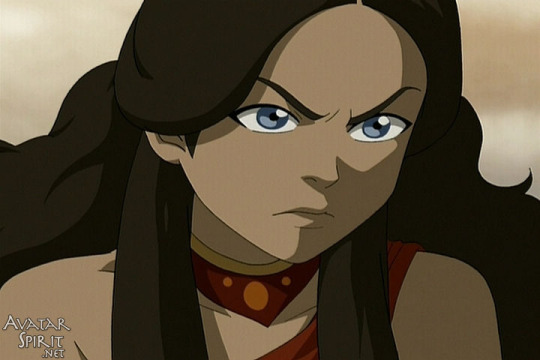
Katara: I will never, ever turn my back on people who need me!
Or THIS girl?

Zuko: Katara! How would you like to help me put Azula in her place?
Katara: It would be my pleasure.
Or THIS girl?
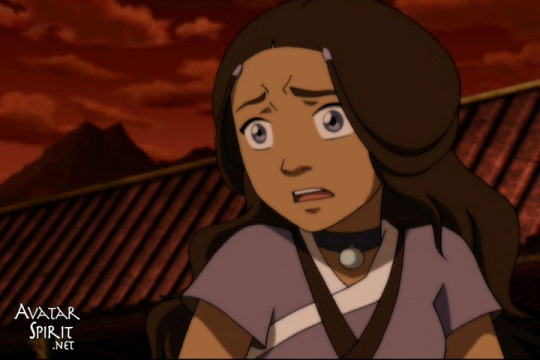
Katara: ZUKO!
THIS GIRL?
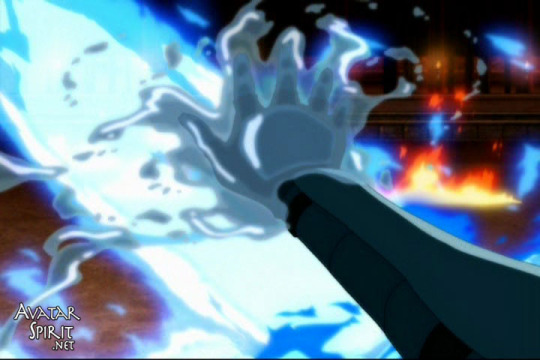
THIS GIRL??!?

(*Bangs head against keyboard*)
And on to the final line. The nail in the coffin.
Aang: ... Fine. I promise.
There we are. He’s accepted it. He’s going to do it if he has to. He’s promised, right? Aang just... gives in. At least Aang doesn’t look thrilled at the idea of doing this. Which isn’t what I can say about Katara. Who looks damn ready to end Zuko right now if that’s necessary. Not that she says anything.
But the simple fact that they are, THE THREE OF THEM, considering this SUICIDE PACT...
...is infuriating.
Then we end with a view of the starry night sky as fireworks come to life.

Yeah, right. Sure. Talk about reading the room here, folks.
So let me recap ALL OF THIS.
Zuko is a character who has been abused for years by his father, burned at the age of thirteen and sent on a quest to find the Avatar. During the show, he learns that he doesn’t have to obey his father, that he can make his own choices and create his own destiny and legacy. He’ll be the new Fire Lord who will usher the Fire Nation in an era of peace, helped by Iroh and his friends.
Aang is a pacifist who refuses to kill Ozai, Zuko’s aforementioned abusive and genocidal father. Killing is not the answer for him; he desperately wants to find a way out, enough so that he gets into a fight with his friends about the mere idea of killing Ozai. He values his friends dearly and learns that the world doesn’t only rely on himself, that he has friends he can count upon.
Katara is a warrior girl who doesn’t back down from a fight. After many trials and trebulations, after being betrayed by Zuko and forgiving him in the end, she has become one of Zuko’s closest friends and allies, especially in their fight against Azula. She’s not afraid to voice her opinions and will never turn her back on people who need her.
But according to the comics... none of that seems to be true!
Or didn’t we watch the same show?
What happened to all of that? What happened to these characters?

I dunno.

You tell me.
46 notes
·
View notes
Text
Why I am not a liberal
12/26/2015
“In the future days, which we seek to make secure, we look forward to a world founded upon four essential human freedoms.
The first is freedom of speech and expression—everywhere in the world.
The second is freedom of every person to worship God in his own way—everywhere in the world.
The third is freedom from want—which, translated into world terms, means economic understandings which will secure to every nation a healthy peacetime life for its inhabitants—everywhere in the world.
The fourth is freedom from fear—which, translated into world terms, means a world-wide reduction of armaments to such a point and in such a thorough fashion that no nation will be in a position to commit an act of physical aggression against any neighbor—anywhere in the world.”
– Franklin D. Roosevelt
Madame de Stäel once said, “In Frace, freedom is classical and tyranny is modern.” Nowadays, speaking of freedom, most people would think of “civil liberty” and “political freedom”, and so many “public rights”. But in the feudal era of medieval Europe, political freedom meant private property rights, and, civil liberty and political freedom were the two sides of a coin: private rights dominated so there was no such thing as an independent “public right”. The so-called “freedom”, originated from consequences of evolution – traditions such as property, contract, inheritance, and family. Inside privileged organizations which had been formed spontaneously like feudal nobility, urban and rural communities, and commercial guilds, people were free. Thus, the freedom of the communities ensured the decentralization of power into local institutions. As a result, ‘state’ was reduced to the level of an external form.
This old order was not out of human design, but a result of the spontaneous evolution of civilization. At that time, “freedom” was a historic practice, but not an ideology from theory innovations. In such an order, freedom was but one significant feature and was not this order per se. To maintain such an order, responsibilities must be undertaken and duties must be fulfilled. Those who only enjoy the euphoria of absolute power and interest would never achieve it. It is precisely this spontaneous order that gave birth to an ideology named liberalism. However, ideology is not reality and liberalism is not liberty. The liberty of the liberal era was not brought by liberals, but ruined by such intellectuals who loved talking about ‘-ism’, and had a fetish about Enlightenment and equal rights. The advocacy of Enlightened despotism by the founding fathers of liberalism, i.e. Physiocrats, was one of the most ironic examples of them.
In modern times, many liberals are fond of talking about ‘left liberalism’ and ‘right liberalism’, but the dichotomy of left vs. right came from France, which facilitates the disintegration of community and creates divergence and chaos. Before the bloody French Revolution, different political parties had not had differences as large as today. Under such a discourse system of left and right, many metaphysical ideologies which are neither verifiable nor falsifiable preceded practical interests, which resulted in the dominance of intellectuals who are good at constructive rationalism, undermining the restrictions traditions impose upon power. Paul Johnson once said, “In a French-style pseudodemocracy, intellectuals have considerable influence, at both government and street levels. In a true democracy, intellectuals are no more powerful than their arguments.”
In the theory innovations of such intellectuals who are obsessed by the idea of Enlightening – although it is nothing but cheap sedition and expensive indoctrination – the masses, the following pseudoconcepts are popularized: social democracy, social market, social contract, social justice, social freedom and even – socialism. “Society”, as an imaginary entity which had been nonexistent in the feudal Europe, was created and inserted between state and individuals, to replace the localized old forms of community. The collectivist tendency, I am afraid, is not difficult to see: to love the diversity of moral standards and the behavior under the guidance of them, but to hate the diversity of the consequences of human actions – especially the diversity of incomes, the whole “society” became the aquarium and zoo of the chattering class! Among them, social freedom and “social liberalism”, I am afraid, are the most fashionable Zeitgeist. They love equal right but hate equal duty: happiness precedes responsibility, and euphoria precedes wisdom. In this manner, their view on power is also quite interesting: they enjoy the authority and euphoria of being a leader, but refuse to fulfill corresponding duties, and, moral melodramas are more paramount than practical concerns for them. Even when they are proven wrong by hard evidence, they will try to evade with verbal virtuosity and even to wield power to mute dissidents. It seems to them, the title “the leader of the free world” brings them more euphoria than freedom per se. The fact that the difference between social liberals and liberal socialists is almost as trivial as that between social democrats and democratic socialists, I am afraid, is no coincidence.
Freedom, in their narrative, changed its meaning long ago. From “equality before the law” to “equal opportunity”, to “equal outcome”, eventually to “equal beginning, path and outcome” in “left liberalism”, no matter how much they claimed to be disciples of “liberalism”, their behavior has been undermining the foundation of liberty – private property. Of course, among the many branches of socialism, the tyrannical machinery of Leninism is dystopian and repulsive. But returning to the fascist model of big corporations, big unions and big government, i.e. the alleged “social democracy” is actually “the end of history” which liberals should applaud? On one hand, the real private property rights are infringed upon by such “modern” constructs like fractional reserve banking. On the other hand, imaginary “rights” – such as basic income and intellectual property right – are created to make way for the expansion of bureaucracy. What a wonderful “end of history”!
Among liberals, many not only believe the source of morality is relative but also believe the consequence of following it is also relative, or more directly, neglect such consequences: you can find liberals “helping” sodomites and libertines complain about the insufficient “social” investment on the control and prevention of venereal diseases making the loss of “artists” and “philosophers”, or “helping” dopehead liberals complain about the insufficient “social” investment on dental problems making them losing teeth, and of course, destigmatizing such “disadvantaged” and “marginalized” “communities”! “Spontaneous” becomes “to rid the minds of the younger generations of the prejudice of the older generations”, and “order” becomes “chaos”. A “society” full of alcoholism, drug abuse, promiscuity and sodomy is probably the stable and ordered utopia in the eyes of such liberals?
Furthermore, all those who promote “freedom from religions” criticize and mock western churches and religions with a near-revolution attitude, and even do not hesitate to fabricate outright lies to serve their own “liberal” political agenda, except that an immediate consequence of it, is to facilitate ordinary citizens’ conversion to Islamism and communism. The critical thinking of skepticism becomes uncritical negativism for these “liberals”. However, they follow atheism “religulously” – and maybe Mother Gaia believed by green supremacists (the so-called “environmentalists”)? Freedom is a crucial characteristic of European feudal traditions, and religion is the carrier of such beneficial traditions which was formed spontaneously in the process of civilization evolution, albeit it may be a collection of pure ideals in the beginning. The belief that being irreligious is a tautology of being antitheist, I am afraid, is the kind of stereotype that all those who claim to be skeptic must strongly oppose. Although the omniscient and omnipotent “God” is neither verifiable nor falsifiable, yet if following certain religious doctrines – namely, certain traditional moral standards – results in happiness, I am afraid, for “the not-so-well-educated masses that do not have time, capacity or interest in ‘deep thinking’” (by the way, it is the most favored preoccupations of the self-anointed intellectual liberals), to be religious is not necessarily such a horrible thing as many “liberals” suggest. By contrast, history tells us, it was exactly some of those liberal zealots who believed in the abstract ideological concept of freedom made way for the volcano eruption of the revolutions of Islamism and communism to destroy the thin crust we call “civilization”. If one genuinely respects the scientific attitude, then he should check his own ideology with corresponding historic consequences, instead of neglecting and even distorting facts. Unfortunately, so many “liberals” like discarding the wisdom enduring the ruthless tests of time and disposing of valuable traditions but keep on trying new ideas without checking the consequences. Even when someone points out the problem, they never admit it but always stubbornly force “society” – that is, other people – to pay for their reckless “change” guided by their own “free will”. They utilize eloquence to gain favor from the masses and to oppress others’ individual independent dissent. In such attempts of “improving” freedom, they invite the bloody rebirth of war and tyranny, like they did in late 19th and early 20th centuries. How come the abstract “liberalism” became so enchanting? It is nothing else than the delusion that man could get rid of the constraints reality imposes upon us. For those who want to fly without wings, seemingly, the disappearance of gravity is an attractive idea. However, without gravity, one can indeed fly, but the atmosphere will disappear too, so the atmospheric pressure will become zero, the blood in his veins and arteries will boil…perhaps death is the only consequence.
Nowadays, there are many Wilsonians deemed “neoconsevatives” who also praise “freedom” and “free world”. Self-determination sounds indeed like the necessary conclusion of “national freedom” – a kind of “collective freedom”: relying on the Roman Republic of our times, i.e. USA, to export spontaneous order (“freedom”), using collective security to ensure the independence of the weak nation-states which were created from the thin air, defeating the evil totalitarian empires, and morphing the free world. So what about reality? In the Golden Time of Wilsonianism, Europe was filled with bloody conflicts and violence. WWI was caused by the rise of liberal nationalism originated from France, and WWII and the Cold War were caused by the tragic death of the Habsburg Empire. Even the ongoing substitutions of population and religion in Europe, is also the natural bust of the soap bubbles called nation-states which lack the immunity to resist alien cultures. In the decolonized Third World, there is hardly any Golden Time of nation-states: it is full of all kinds of totalitarian despots. The medicine we call “Wilsonianism”, for them, is just like using Penicillin to treat patients troubled by mood disorders but actually allergic to Penicillin. In fact, there are no “successful” and “unsuccessful” nation-states, but only nation-states that are already bankrupt or are on the way of bankruptcy. The so-called “democratic and secular nation-state with universal suffrage”, is not a new era of history or “the end of history”, but the last radiance of the setting sun of civilization. Relying on Rome to export the order of freedom is no different from transporting ice-cream in a desert: most of it is evaporated on the way. At large, this kind of “liberalism” is actually reducing the degree of freedom, just like redistributing wealth is reducing wealth.
Why am I not a liberal? (Hayek once wrote an article, “Why I am not a conservative”) Because I admire the luxuriant giant tree with the name of civilization, including its roots. So many liberals are so obsessed by the sweet fruits of the tree that they totally ignore the other parts, and even do not hesitate to damage the roots for more fruits. Ironically, they often consider themselves to be THE roots, albeit in fact they are nothing but a bunch of parasites.
1 note
·
View note
Text
15x01: Belphegor, Spells and Symbology - Oh My!
So, my chickadees, we’re one TFW 2.0 member short. Yeah, such a bummer, right? The kid who’s so damnnn symbolic of change overall has bit the big one (courtesy of granddad) (like what?!) and is now in the big black Emptiness in the sky where all angels go when they bite it. (but what is the Empty symbolic of though?) (yessss indeed) (the unconscious where all self-liberation commences)
Okay, Jack be gone, but in his stead we now have this new kid on the block, yeah, and this new kid on the block is taking the place of the linchpin for Team Free Will’s push towards self-actualisation and it’s no wonder, then, that this new kid on the block is a speaker of truth! See what I’m getting at here?
Basically it’s just that Alexander Calvert - darling and dearling - is still playing a character pushing our boys towards Good Positive Change. Or so I believe. I mean, obviously we shall see, but the setup of Belphegor isn’t saying anything else.
Oh, he can’t be trusted. Absolutely not. Night and day to Jack in that regard. Or, perhaps, I might go so far as to say that he’s Jack’s shadow manifested. *shrug* But that doesn’t change the fact that he’s Speaking Truths That No One Else Is Speaking.
Man! Still not off the high from that episode, swear to God I would french Andrew Dabb in a heartbeat.
Okay, reeling it in.
So, three things -->
Thing the First: Truths
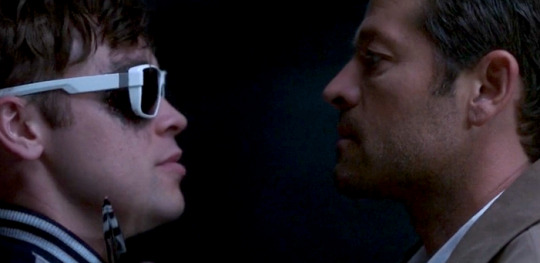
He calls Cas an abomination in that stupid, dumb trench coat. This goes to the very core of Cas’ internal struggle with his identity, so this calling out of it, threading back through Cas’ journey, feels weighty af.
He speaks candidly of having worshipped a giant rock shaped like a penis as a human and is, unabashedly, checking out men and women alike (shouldn’t actually ascribe bisexual as his choice sexuality but he is clearly not straight), and then he subtly flirts with Dean, which skeeves Dean out since Jack was kinda his kid, so yeah, stop that immediately, Belphegor. (but hey if he jumps vessel then all bets are off) (just saying)
*rubs hands together because oh my god I really want there to be textual flirtation that doesn’t go anywhere obviously because Belphegor is already picking up on the tension between two certain someones*
Belphegor also brings up Hell and Alastair and Dean breaking and torturing souls! Like what?!! The callbacks to end all callbacks. To the beginning of it ALL. Like, yeah, we’re in the final stretch here and Dabb is not kidding around.
And yes, Belphegor calls the moment Dean and Cas share at the end of the episode what it is, which is awkward, and then tries to prod Cas to talk about it. Albeit ironically (of course Cas won’t open up to him) he’s still doing it because he just doesn’t care what anyone thinks of him and this is precisely the sort of character these two need to poke and prod at their inability to fucking communicate openly.
Hot damn!
But. We shall see what we get. :P
It’s interesting that he barely interacts with Sam. Sam is his own man this episode in very many ways and I very much like it.
Thing the Second: Spells
Graveyard Dirt and Angel Blood
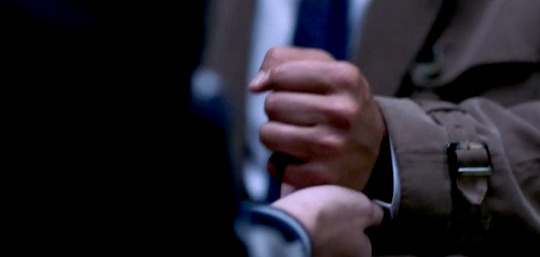
Naturally most of us, I’m sure, immediately thought of the “I’m always happy to bleed for the Winchesters” moment in S7. Here, Cas isn’t so happy. He’s suspicious, and rightly so, of this new player on the scene. Still, he complies.
Now, there are things to take from this scene that have to do with life vs death, mortality vs immortality or even Earth vs (or if you’d rather) combined with Heaven.
Cas’ strong reaction to Belphegor defiling Jack and Belphegor predominantly having a personal interaction with Cas through calling out the trench coat (symbolic of duty/humanity and at this point that space Cas occupies between) puts the focus on them here. Add to that the need of angel blood and it’s even more heavily linked to Cas symbolically, right?
What exactly does the symbology mean? Honestly, beats me. It feels like a foreshadowing that won’t be clear to us until further down the line (hopefully), but it excites me to think that for a character who has battled for his entire progression with the question of where he belongs, we get a spell that literally combines dirt or earth with the blood of Heaven.
Does that mean that there’s a choice to be made - mortal man or immortal wavelength? - or does it mean that Cas is already a bit of both and just has to accept himself as he is and continue on wearing that stupid, dumb trench coat proudly, the same way he has for a good while now, eh?
Well, that is the real question, isn’t it?
But then again, I’m a bit biased. :)
Mound of Salt and Human Heart

This one’s very interesting as it’s tied more directly to both Dean and Sam. Cas is a part of it too, as he’s with Sam when the spell is cast and they run for the safety of it together, but Sam is the one most affected by it, and I’m curious to see what effect it will have on Dean as well.
Why?
Because what does salt mean on this show?
It means protection. The spell is, literally, a protection spell, right? A magic ring of salt a mile wide - no ghosts in and no ghosts out. For characters who have always been incredibly haunted by their past, though in subtext, the external hauntings are being salt-circled away from them, while the human heart of the spell could symbolise the brothers’ hearts actually entering a safe space as well.
Again, why?
Because of what Sam does the moment he passes the perimeters of the spell.
He turns around and he faces a fear that has been very pronounced on the show - his fear of clowns (or, as I’d argue, his fear of people wearing masks, not showing their true face) - and he tells that fear to shut up.
Mind. So. Blown.
What a moment for him! *goddamn fist-pumping the air for him*
The heart is at the centre here, and the heart symbology has always been extremely strong with Dean, but in 13x12 it was Sam’s heart on the line and now both of them are linked to the beating heart on that mound of salt linked to a sense of safety, of protection, of trust. The potential, peeps. The potential of a deeper exploration of what the want in their heart of hearts. Yeah?
Not just in the coming few episodes within that mile wide magical ring of protective salt, because Lord knows how long that’ll last, but through the symbology of it. I mean, what a way to instil hope that this is what they’ll all be pushed to explore during the coming season. *fingers crossed*
Thing the Third: Motivation
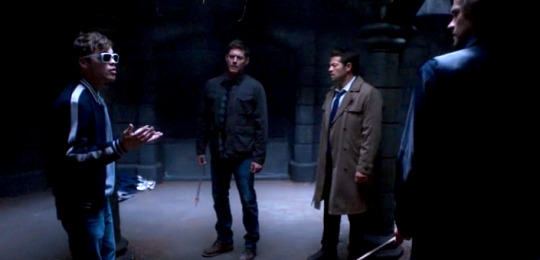
Or possible motivation for Belphegor.
Given his speech in the crypt about wanting Hell to stay as it always has, it’s intriguing that he’s an opposite mirror of Anael. She had a boring, repetitive job and she couldn’t wait to get out of Heaven. She chose to make a life for herself on Earth because she actually wanted to help people (if that statement sticks) (I’d love for her to come back this season and then all bets are off) while Belphegor wants to help the Winchesters restore Hell to its recent glories so that he can go back to punching that clock. And, you know, torturing souls.
Too simple?
Yeah, maybe.
Of course he knows who the brothers are (love that there are newspapers in Hell) and this feels like a possible plant for him actually seeking them out specifically. Might not be, but it’s an interesting plant if so. Because of how Lucifer tried to make Nick resurrect him, for one, but also because of the Heaven/Hell dichotomy overall and who’s vying for what and who’s on the side of whom. *curious af*
Here we finally have a character who might have some personal stakes in driving a wedge between these men, and what better way to drive a wedge than to dredge out truths no one’s speaking, thinking it’ll break them apart when we know it’ll actually only serve to open their eyes to their own blindness and will end up making them stronger, individually and, through that, as a group.
*gah*
Could Belphegor not be Belphegor?
Yeah, but I don’t see why he would be.
I think he’s Belphegor the demon, but his stated motivations might just be a half-truth. Perhaps he’s even linked to Michael. darkest!Michael would be something tbh. After all, Michael was always, even if God held the ultimate reins, the shadow along the edges of the brothers’ fate. And after a few lifetimes in that cage, I do wonder exactly what might emerge. *goosebumps*
That said, Michael is a pale representative for toxic masculinity when the Almighty himself has stepped into those shoes, so symbolically it might be more fitting that we get something entirely different. Time will tell!
#spn meta#spn speculation#spn 15x01#tfw#dean winchester#sam winchester#cas#jack#belphegor#truth sayer#shadow manifestation#symbology#michael#my reading
115 notes
·
View notes
Text


My muse in a relationships || @ephemeralkryonics || accepting (Part 1)
🤗Are they physically affectionate?
Physical touch for Hanzo is immensely important; not only is it a fundamental human necessity, but the need for affection in him is unique in the sense that even he may be perceived as “a loner,” maintaining the ability to ignore relationships with others unless the necessary ones as a Grandmaster and being a parental substitute for Takeda Takahashi, there is still a sense of emptiness that exists when he is isolated from human interaction.
For him, affection is more than just an emotion, it can be considered by him as a most important requirement in healthy relationships. Affection is an ebb and flow between two people, where each individual is giving and receiving a certain amount of contact and interaction at all times. Whether it is through a hug, kiss or a cuddle, affection is the way he shows Kuai Liang how important he is in Hanzo’s world.
Physical intimacy between them not only strengthens the bond between them and fosters closeness, it serves as a major binder that helps them iron out the differences between them. Physical intimacy builds a stronger connection between two people by mitigating any existing negativity. Through exercising it, it would only enhance trust and a stronger sense of companionship between them.
🎶Do they have a type?
Hanzo seems to be gravitated towards emotionally strong people who he could lean against; resilient and insistent on their own, capable to meet his fire, but also being able to understand and extend compassion and perception. Emotions become the most visceral and primal external stimuli which he could exert without having the blueprint of him crumble and blur around the edges. As he is known to be volatile, impulsive and follows his heart more than his brain, it’s better than following the visceral manifestation of violence which he used to be subjugated under Scorpion’s fiery, demonic spirit.
As I associate Kuai as a rose; for Hanzo needs that type of significant other who can balance him out. I always headcanon that Harumi’s personality would have been very similar to that of Kuai Liang’s; quiet, altruistic, emotionally strong and stable, very chill, strong-willed and a very good moral and emotional pillar for hanzo. If Hanzo Hasashi was (and still is) the most ferocious and talented Shirai Ryu warrior in all their history, Harumi would have went down as the strong matriarch of the clan, who encompassed the clan with open arms, offering words of wisdom and advice and being a good listener. She would have served a pivotal supportive role in the clan.
😡What are their deal breakers?
His two most primordial facets include discipline and loyalty, so if someone is dubious in their morality, a perpetual liar who is distrustful and disloyal to him in any manner, there would be no forgiverance.
Because Hanzo is such a traditionalist and heavily influenced by Confucius’ teachings, its philosophy including;
Ren, the virtue of benevolence, charity, and humanity;
Yi, of honesty and uprightness;
Zhi, knowledge;
Xin, the virtue of faithfulness and integrity;
Li, correct behavior, or propriety, good manners, politeness, ceremony, worship.
Those who cannot follow the doctrines which he had been taught - he is a proper, respectfully behaviored warrior - are not worthy of pursuing any relationships with him at any cost. Kuai Liang encompasses all of this, and considers him not only a respectable warrior, but a friend, a life companion, a lover and a soulmate.
↕️Are they sub, dom or switch?
Hanzo is predominantly flexible (despite wanting to exercise control and much prefers being dominant) when it comes to lovemaking, but as his masculinity allows, he will expect to be in a dominant position even when he’s seemingly not. Intimate sex to him transcends the concept of sex, and it has to be significant in that both partners have to be emotionally connected and pushed together by the fate’s hand, one touch that fit, as old, idealized feelings would be relearned to his new body. For love to him isn’t something that is forged nor created, but has always been (taken away by deception and manipulation of Quan Chi). With Kuai Liang, he will expect himself to be in a dominant position simply because he’s more experienced one out of the two.
⏰How long do their relationships tend to last?
Until the end of his living breath. For Hanzo, love binds all romantic relationships and that bond is unbreakable. Without love, he would not exist; for love makes all hard hearts gentle. Love itself grants him a sense of reassurance, self-esteem, and love for himself. Love enhances the lives of both partners in the relationship when he is in love, his emotions are at an ultimate high. It creates a bond that is not easily broken and it lasts for his lifetime.
💍Would they ever get married?
He was married once to Harumi and he considers her as a soulmate. Although Hanzo is still mending his bleeding, septic wounds, he also has come to realization that miring in the past had been stunting his growth and development, as years and years have been spent with gnawing grief, resentment and melancholy. The desiderium, a deep longing to experience will always be there, but it’s being married (having himself absolutely devoted to responsibilities and duties that come with his marriage) that anchors his heart and settles his mind.
🏷️Do they give their partners cute nicknames?
Hanzo is mostly a traditionalist who is proper and formal, so he would often use things like ‘beloved,’ and ‘love.’ Or he would opt to use Japanese and call Kuai “運命��人 (man of destiny; soulmate),” “あなた (you, in terns of romantic/sexual love),” or “ハンサム (handsome).”
💋Are they more sensual or sexual?
He is essentially a sensualist, meaning he will utilize all the blazing, burnt, burning trails of his hands to trail along his significant other’s skin, roaming to paint his color upon his lover’s body. He’s vanilla when it comes to sex; there is a lot of eye contact, gentle caresses wanting sufficient time to explore his lover’s body. Essentially, it is a sacred act that chases away his negative emotions melt away. It anchors him, reminds him that he deserves happiness. He deserves a second chance at love, despite him always struggling with underlying guilt. He will be at his most vulnerable, with all the raw, unfiltered emotions spilling out as he reaches the climax.
In essentiality, sex is feeling the sequence of his heart beating through his lover’s lips, as they create beautiful rhythm together. It becomes this peculiar thing of dualism and dichotomy, where it’s all he wants and other times it’s what he needs the least. He wants it with all of his heart, yet his gnawing guilt and limerence towards Harumi will always be there no matter what. And he’s an absolute pessimistic optimist and believes not many will love him, because of all his underlying emotions and all the pain-riddled dourness and appears indifferent and nonchalant. Even with his hardened exterior, he’s so vulnerable and soft inside. He knows of its cruelty and indescribable beauty - and all of its otherworldly, seamless perfection of stealing each other’s breaths and letting him wrecked in cornucopia of sensations. And he wants the sharp angles or his personality and beautiful lines of his body and mind to become completely abstract as he floats in the seventh heaven, as he savors it, engrave it in his memory and write songs about it as notes imprint on his lover’s skin, with everything light and good in the world, despite him not living in it.
📖What is their favorite outside of the bedroom activity to do with their partner?
It would be either sparring or spending time in the hot springs to relax. Hanzo can harbor a lot of stress within, most of which he does not get to release beyond fighting or taking a moment in nature to relax and calm down. He also likes to delve into his artistic endeavors, preferring to paint his partner in sumi-e, writing poetry, practicing caligraphy or reading.
🛏What is their favorite bedroom activity to do with their partner?
I always imagine them being more sensual than sexual, so they would strip down naked, let their roaming hands and lips become the quenching rain that water their acrid, parched dry skin down with gossamer pitter-patters of peppered kisses and exploratory caresses that repeatedly map the coordinates of their musculature, all the imperfections and scars and all, along with the exquisite peaks and valleys of their chiseled form shining aureate under the beaming moonlight.
Their sensual, intimate, and carnal exploration could last for hours at times, The ebb and flow of time when they are entangled like this brims them with exquisite joy, exhilarating bliss and contentment, without their emotional abysmal void gnawing their unconscious, as both of them suffer from severe and lucid nightmares.
Alight brighter than the sun under Hanzo’s furnace warmth and Kuai’s misty vapor that saturate their aureate forms, through their vigorous carnal exposition of impassioned desire, gentleness and tenderness, they remind themselves that they are not alone - they are highly introverted beings who thrive in solitude and loneliness, but desire to be emotionally connected to a person, so much so that each other’s presence alone calms and numbs their pain - as the cruelty and violence of their daily lives become offset by the exploration of body, mind and soul.
💚Are they prone to jealousy?
While Hanzo has his own streaks of insecurity and paranoia, he is confident and holds himself in a high regard, and also does his significant partner. Because of his lack of jealousy, his instincts are signaling that he is in a relationship with someone who he will be fully able to trust. He can appear concerned and worried, but he will never exhibit it openly. He has high sense of self-worth, and don't feel envious of Kuai’s circumstances or relationships. For comparison is the thief of joy and Hanzo is well aware that if he is constantly stacking up his life against someone else's, chances are he will find something to nitpick. Instead, he prefers to just plainly fixate on the positives - in his life and in the lives of others that naturally involves both of them as Grandmasters and Protectors of the Earthrealm sworn to protect it until their last breath.
😘Does their demeanor change when in a relationship?
In general, people are very much affected by those around them, and not just behaviorally. A growing body of scientific evidence suggests that people’s self-concepts actually change when they’re a relationship and Hanzo is no different from the normalcy of how people act. Because their relationship is healthy; they have mutual respect towards one another and are highly intelligent, sympathetic people in their hearts. Because deep down, they are kind, responsible and emotionally resilient, so they are going to only substantially improve their chances of maintaining a stable and satisfying marriage.
#✗ obsessive cathartic (headcanon)#✗ the ineffable testimony of spawned hellfire (scorpion)#✗ again and always (scorpion x sub-zero)#ephemeralkryonics
2 notes
·
View notes
Note
Dragon Ball. Dragon Ball Z Dragon Ball Super. Which is your favorite?
Oh, anon. You poor soul. You’ve activated my current obsession. Okay. I preface this by saying that DBZ, imo, is the CLASSIC. Frieza, Cell, and Buu? Iconic. DBZ is what I think of as the core of the DB franchise and I adore it accordingly. That being said… I’m really, really loving Dragon Ball Super.
(And I’m totally gonna tell you why because you made the mistake of starting this conversation in the first place :D)
I’m just? A sucker for lore filled with fallible gods?? This is my long-lived love of Greek mythology rearing its head. Even back in DBZ the Supreme Kai was instantly a favorite of mine. Yeah, yeah, the whole fandom rags on him for supposedly being “useless,” but that’s precisely why I love him? He starts out as this mysterious, incredibly powerful figure–powerful enough to scare the crap out of Piccolo–and then very quickly falls off that pedestal, making him relatable and humanized. Shin clearly has a shit ton of trauma from, you know, watching Buu kill and/or absorb his entire family. He’s been forced to take on a job meant for five and he definitely hasn’t been trained (or at least fully trained) for this particular position. He comes to Earth expecting to use mortals as a tool, as one would expect from a high-ranking god, and is just totally blindsided by how powerful they are. It’s an instant double-edged sword. On the one hand hell yeah defeating Buu just got a whole lot more likely. On the other hand, existential crisis much? Who am I–who are all the gods–if we’re not intrinsically more powerful, knowledgeable, or spiritually sturdier than the mortals we watch over? Goku, Vegeta, and especially Gohan upset the presumed hierarchy. It’s why we get such a good dichotomy between Shin and Kibito. Shin rolls with this new information and embraces it fully. Okay. Mortals are stronger than us in so many ways, how wonderful! We can learn from them and rely on them, forming equal partnerships to achieve our goals. Kibito is stuck in his assumptions. How dare you set foot on this world? How dare you think you can pull out the Z Sword? How dare you think yourself equal to a god?
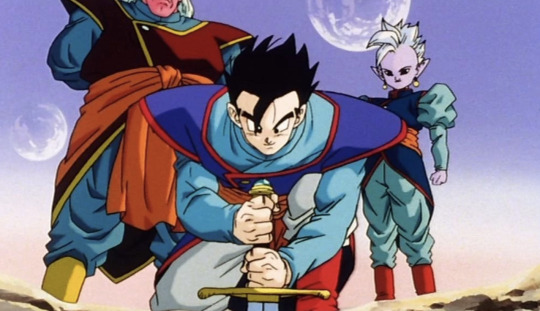
It’s a familiar theme for DB: humanizing the latest, all-powerful entity. And each new introduction becomes more extreme.
Kami was our original god… who got some awkward moments. Then King Kai is the top guy…who loves lame jokes and lets Goku tear up his sacred planet in the name of training. Then Shin, Supreme Kai of the whole damn universe… who is also an anxious bean Just Trying His Best. It’s a theme I love because it upholds humanity (or in this case Saiyans adopted by humanity) as beings of endless potential. DB is all about pushing past your limits, but that doesn’t just apply to physical power. It also ties into upending the status quo; showing those who think themselves arrogantly better–in this case the gods–that no, we all have worth here. When the chips fall it’s mortals who consistently manage what the gods cannot, reaching a point where, ki-wise at least, they’re indistinguishable from gods, raising the question of why they were ever above them in the first place. They’re not. We’re all on equal footing once those assumptions are acknowledged and done away with. Ancient Kais can like dirty magazines. Supreme Kais can have panic attacks. Destroyers can love pizza as much as the next, average anime watcher.
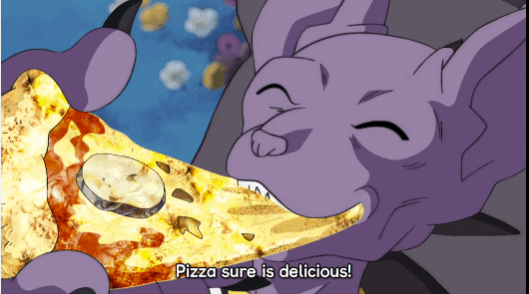
Indeed, we see in the Tournament of Power that these rules now apply to Goku in his god state. He might have reached incredible power that everyone else thought impossible… but that doesn’t make the rest of the cast “below” him. It’s only because of his friends–presumably “useless” friends like Krillin and Tien–that allow him to enter the tournament and get as far as he did. It’s his old mentors who he has far outpaced that remind him he still has much to learn and who help Goku tap into Ultra Instinct in the first place. It’s a simple android we haven’t seen in years who manages to win the whole damn thing. The story consistently applies that same message of equality and worth to everyone, including our original paragon who has now reached the status of the very beings he’s worked to outpace. Rather than turning Goku into the hypocrite, DB keeps reminding him that no amount of power is going to change his or anyone else’s worth. He’s still BFFs with Krillin. Still married to Chi-Chi. Still needs other “weak” people like Bulma to help him when things get tough. No time machine, money, or strategic smarts? Sorry, no win.
In short, Dragon Ball Super takes that fantastic message and dials it up to 11. Now suddenly we’ve got a scary Destroyer God… who is easily swayed by tasty Earth food and a good nap spot. Angels who are equally humanized in their humor and love of mortal creations. An omnipotent ruler who is recognizably child-like. It both makes Zeno lovable and downright terrifying. He’s human enough to form friendships and use his power inappropriately. Zeno has the capacity to fall in love with a simple handshake as well as destroy an entire universe with the same detachment that we might, say, walk through an ant hill. Why did I do it? Because I could and no one has taught me yet that this might be something I shouldn’t do. Everyone has the capacity for growth.
youtube
And it’s so goddamn funny? Literally this scene is everything to me because it slams godly assumptions together with simplistic, mortal friendships, then lets that contrast play out. The most powerful being ever, creator of it all, the god that makes every other god shake in their boots wants… a friend? Okay! Our equally intimidating Grand Priest cracking up at this development? Whis losing his shit in the background? Shin straight up fainting? Goku pressing his shiny new god button because who DOESN’T press a button when you’re suddenly presented with one? All of it slays me. Forget stories where you endlessly bow before your supposed betters, knowing that you will never be able to even fathom their power. I want more stories like this, where the hero introduces enough kindness and brazen communication that it upends everyones’ expectations and fun, crazy new relationships form. Goku moved from utter shock at learning the Supreme Kai even existed to hoisting him over his shoulder like a drunk friend who is still refusing to head home. I love this weird-ass family.
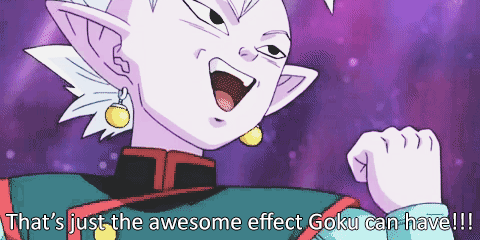
All of which of course introduces the opposite as well. What if we’re given Zamasu, a fallible god whose imperfections don’t result in him becoming another quirky family member, but lead him down a path that endangers the entire multiverse? Though Super hasn’t commented on it explicitly yet, we’re also starting to toy with the idea of exactly how “human” the top gods are and how much growth they are capable of. For example, I’m fascinated by the Grand Priest. The anime makes him out to be far darker than he is in the manga, and I know there’s a disconnect between the two, so I’m not currently inclined to think that he’s the end Big Bad. Rather, he seems to actually have a stronger moral sense than Zeno–he comments on how awful it is that mortals riot and kill one another after learning about the Tournament–but as Zeno’s subordinate, and being well aware of how easy it can be to displease him, he’s not in a good position to sway him. We see him introducing tiny bits of logic to the Zenos (like stopping the fight between Goku and Toppo in the anime), but that’s a far safer thing to suggest then, say, “How about we don’t erase a ton of universes at once, hmm?”
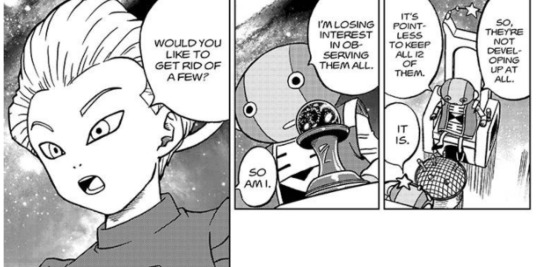
Like his angel children, the Grand Priest ultimately exists to serve his Lord… but Goku and his friends are in no such position. Not as overtly, anyway. Created through evolution and developing their own ideals, they have the freedom to challenge and ultimately teach all those high-level gods, including Zeno. He says it himself in that clip: “No one will try. You can do what no one else can do!” Goku, both as a mortal and a very straight forward one, has the capacity to charge past those expectations and hit on something grand.
However, we see with Whis that, wow… maybe angels really are so far removed from us that they don’t care in any meaningful way. Whis seems like a friend, but when push came to shove he wasn’t very upset about his entire universe–and a Destroyer he’s known for who knows how many thousands of years–getting destroyed. We can attribute this apathy to him assuming it will all turn out alright (if anyone would realize that whoever wins can just use their wish to revert everything back to normal, it’s Whis), but even if he actually doesn’t care much right now… he’s learning too. Whis went from shrugging about Beerus destroying the Earth (at least he has his leftovers!) to telling Trunks and Mai how to break more time rules–rules Whis originally thought were more important than anything else–just so they could get a happy ending. We’ve seen him form a legitimate friendship with Bulma. He does little things like waving a Universe 7 flag and having them hold hands that demonstrate care, outside of practicalities (like delivering Bulla so Vegeta can fight). He seems more invested in challenging the status quo than his brother and even his brother, notably, slips up and uses “Father” instead of “Grand Priest,” demonstrating a certain level of familial love that can sometimes override pure duty.
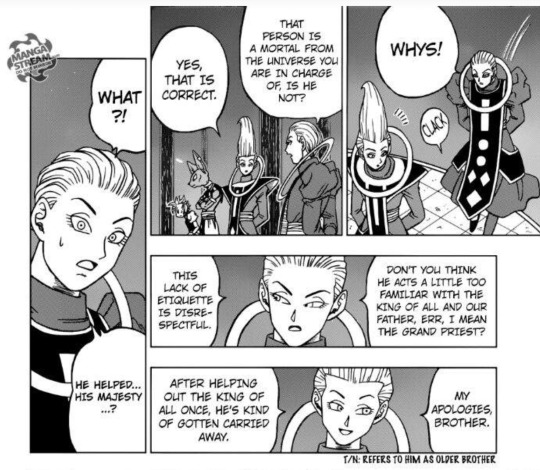
Vados copies Whis and sits with the Universe 7 team, shrugging off the other gods’ disgust. Whis then shows legit pride in Goku managing Ultra Instinct. It’s GREAT watching these beings move from seeing mortals as inconsequential specs in the multiverse to individuals worthy of their time, attention, and respect. We’re seeing that development with Whis most of all, slowly but surely.
And it helps that our protagonist is really worthy of that respect this arc. Beyond his innate capacity for kindness, Goku is wonderfully smart in Super. I myself have mentioned that being naive and battle obsessed to the point of endangering others is kind of his thing, but Super hits a wonderful middle ground. Goku is the one who thinks to use the future Zeno to destroy Zamasu. He figures out a good portion of Zamasu’s plan. He thought up the idea of using dead warriors in the Tournament of Power and instantly has a way of negating the danger Frieza would pose: let’s use Baba so he can only come back for 24 hours. The anime (strangely…) emphasizes how the Tournament is supposedly Goku’s fault, but Vados reminds everyone that Zeno planned to erase the universes regardless. Though he didn’t intend the outcome, Goku’s suggestion of a tournament gave all universes a fighting chance. Much more importantly, it introduced the reward that would ultimately save them all. Goku’s got a good head on his shoulders this time around and the story emphasizes that it’s his capacity to care that saves far more than his brute power. Sparing enemies leads to them turning over a new leaf. Cultivating a diverse family results in a team with the strength and strategy to win. The ability to look at anyone–even Zeno–and smile as you shake their hand results in allies who can save the day when your own strength fails. IT’S ABOUT LOVE AND FRIENDSHIP AND I’M A WEAK GOODY-GOODY.
I just… fucking love DBS. It takes all of the best underdog themes of the DB franchise–Can a low-class warrior become the best? Can a normal human woman gain the love of a prince? Can mortals ever stand side-by-side with gods?–and homes in on those questions, emphasizing them to an almost meta extent. I could give you another hundred reasons of exactly how much I’ve enjoyed these new stories… but I should stop now lol
Last note though Ultra Instinct is AWESOME
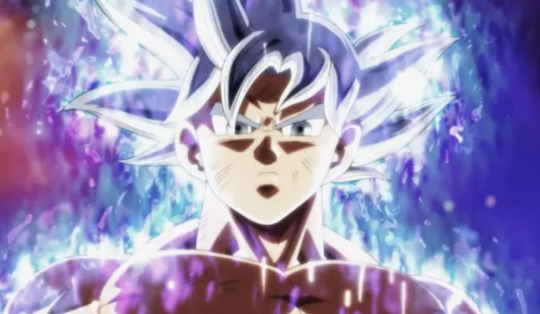
#Anonymous#Dragon Ball Z#DBZ#Dragon Ball Super#mymetas#I'm a simple person with simple obsessions#and then I write shitty rambles about them#it is a joy in life
29 notes
·
View notes
Text
verses
This is a running list of all the verses I’ve written for bel. First are her fanon (canonical) verses, followed by modern, fantasy, crossover, other fandom verses, & lastly, her Wallflower verses (+ link to a more in-depth description of my concept). I’m more than happy to create a verse that is compatible with your muse, let it be giving her a new modern occupation or adapting her to your muse’s universe (if you’ll be patient with my learning ) However, I’ll be applying her to new universes selectively because I’m not a fan of everything nor do I always have the energy/patience to invest in it.
hello it’s mz. hyde . undetermined // verse
~FANON VERSES~
HELL IS FOR CHILDREN . underground child // verse
a bright, curious, cross-dressing child who goes by the name “bailey” & gets into more trouble than her mother & older brother can handle. in attempt to control her behavior, risa lets her stay with a trusted doctor in town (former colleague of her late father) & he starts teaching her basic medicine & biology (which quickly turns into epidemiology come the shiganshina outbreak). she proves gifted with the material, a trait she shared with her father.
BIRD IN THE CAGE . underground citizen // verse
past adolescence, a teenage bel selectively relents to the feminine gender role designated by her mother as the small Zinone family works towards building a large enough fortune to buy surface citizenship. she does her homemaking & continues to pursue her medical apprenticeship while at home & in the clinic, but occasionally dons drag to explore the rest of the city under her family’s nose. when her brother enlists in the scouting legion for a vast sum of money (to those in poverty), he takes the light behind her eyes with him.
SLAVE TO THE GRIND . shiganshina citizen // verse
a languid young adult who maintains a modest medical practice as well as helps with her mother’s homemaking business. she makes the occasional secret trip to scout hq to volunteer her medical expertise, where she momentarily rediscovers her lust for life.
TWIN ROSES . garrison soldier // verse
giving up on her dreams following the year 845 fall of wall maria, bel dons twin roses & secretly composes her plans for 3dmg modifications. she lives a quiet, uneventful yet peaceful life with her mother & squad members.
LA GUILLOTINA . sentenced to scout // verse
having lost the majority of her squad during the year 850 battle of trost & committed murder to defend her mother during the retreat, bel finds herself with a accolade she detests, but would decide her fate as she faces her sentence
& TO DEATH WE SAY ; NOT TODAY . medical officer // main verse
bel settles into the scouting regiment & lives out her dream of saving lives on the front lines. this verse leads up to the uprising arc.
FAMILIAR TASTE OF POISON . war criminal // verse
the uprising arc. forced to face the demons of her mother’s past as well as her legion being marked a criminal organization, she is also forced to come to terms with taking lives rather than saving them.
GRACE PERIOD . scout redemption // verse
this verse spans the time between the resolution of the uprising arc to her amputation. the scouts experience renewed glory as they return the rightful heir to the throne & prepare to reclaim shiganshina.
LA TRAVIATA . retiree // verse
soon before the return to shiganshina, bel loses her foot to the leader of the underground mafia & is forced to retire from her military service. she departs for the snowy mountains of the north to research titan spinal fluid.
alternatively, she’s crushed by a boulder during one of the preparatory expeditions & amputates her foot to save her life either single-handedly or with the help of another soldier, i.e. yours?
LA RESORTA . amputee // verse
bel hangs up her lab coat & returns to her soldiers, where she comes to rediscover is where her heart lies.
RED SWANSONG . postwar // verse
paradis is clear of titans & the world is free of war. bel retires her military service for good & continues to care for the remaining military veterans while mourning the fallen. she dreams of settling with a family at this time.
~fanon divergent verses~
FELINE TITAN . shifter // verse
bel reawakens with the memories of a former queen who once ruled humanity before Paradisian allocation. her 10 meter titan is skinless, spotted, & sports long claws. [aimless meta]
AS ABOVE SO BELOW . noble // verse
instead of being born in the underground to a poor homemaker, bel’s born in the sina capitol to a rich socialite. she nonetheless dreams of becoming a scout soldier & practicing medicine like her father.
~modern verses~
CODE BLACK . emergency responder // main verse
as used in los angeles county hospital, “an influx of patients so great, there aren’t enough resources to treat them.”
G. O. M. E. R. YOU P. I. T. A. nurse // verse
nurse slang for “get out of my emergency room, you pain in the ass”
LIONESS . mother // verse
bel becomes a mother, let it be via adoption or a fertility miracle.
SO CLOSE ; AND STILL SO FAR . medical tech // verse
bel leaves medical school & lands a less than satisfying job
GLORY AND GORE . clinical doctor // verse
a cutthroat doctor who rose to her status by playing the game of the social ladder.
PRETTY HUGE DICHOTOMY . medical student // verse
bel studying for her phd & finding a stark divide between clinical & the average life.
BETA EPSILON LAMBDA . undergraduate student // verse
although not part of a sorority, the lack of social life experienced by this iteration could very much use a pledge.
VAGABOND . homeless // verse
after dropping out of high school, bel leaves her family & takes to the streets, convinced that she is better off on her own. she makes a living through stealing, odd jobs, & street performing.
YOU LOVE ME FOR EVERYTHING YOU HATE ME FOR . escort // verse
bel engages in transactional sex to survive.
RED LIGHTS PAID SIGHTS . sex worker // verse
cam girl, stripper, exotic dancer, nude model: bel engages in all these things & more, finding comfort in sensual attention.
SICK INDIVIDUAL . high school student // verse
a rebellious young woman spends her days challenging authority inside & outside the classroom while maintaining grades reflective of her interests.
IF IT AIN’T BROKE; IMPROVE IT . mechanical engineer // verse
rather than pursue medicine, bel finds a rewarding career in her other passions.
IT’S SUPPOSED TO HURT . personal trainer // verse
bel makes a living out of training others to thrive.
BODY LANGUAGE . professional dancer // verse
she started out as a street dancer before making her way through club after club & finally landing a contract with mainstream talent. belly dancing, burlesque, & pole work are her go-to styles.
~fantasy verses~
ABERRANT APOTHECARY . witch // verse
a life witch or necromancer? this woman manipulates the energies of life to do her bidding.
SEIS SEIS SEIS . concubus // verse
unbound by position & generally unaffected by a thirst for intercourse, this nonbinary asexual demon finds thrills elsewhere.
DON’T FALL ASLEEP AT THE HELM . merfolk // verse
a rather terrifying as opposed to conventionally beautiful mermaid, bel passes her time defending her territory & rummaging through shipwrecks
conversely, she’s an obnoxiously colorful mermaid that makes an easy target for predators
HURT LIKE HELL WHEN I FELL . angel // verse
bel’s an angel much like those from cw’s supernatural sans the dryness
SINGED FEATHERS . caladrius // verse
this magical bird takes blight unto herself & flies into the sun like a phoenix, dispelling the plague & curing her benefactor. feathers naturally sprout from various parts of her body. she uses a cloaking spell to appear human, but she nonetheless sheds feathers.
~crossover verses~
ONE STEP CLOSER TO THE TRUE WORLD . the115project // crossover verse
Commander 115′s army lands in Paradis & brings a new battlefront to the island (original multiverse concept from the115project)
FELINE FAUNUS . rwby // crossover verse
the transition from Paradis to Remnant brings out cheetah-like characteristics similar to her titan form her aforementioned fanon divergent verse. human skin with full body markings, ears & a body-length tail with fur
~other fandom verses~
MITOTIC REGENERATION . naruto // verse
a failed student of a legendary shinobi & excommunicated from her clan, bel wanders the ninja world in search of a way to revive her fallen brother as a missing nin from tsukigakure. she specializes in poison art jutsu, is developing her own version of mitotic regeneration, & agnostically practices jashinism.
GOLD DUST WOMAN . rwby // verse
subject to the discrimination of being a faunus, bel finds herself a member of the White Fang but begins to question whether their endeavors are really what’s best for her kind. her semblence is life transfer & manipulation while her weapons are dual-wield blades similar to those from her snk verse.
I WANT TO BE CONNECTED . sarazanmai // verse
bel, a fresh Wallflower devotee, soon throws herself at the mercy of the otters to save her brother, a police officer who died on duty. as punishment, she’s made to keep an eye out for kappa activity but maintains a dual relationship with those duties alongside her obligations as a Wallflower agent. she keeps her loyalties to the otters blurred while seeking to protect the sara trio as an undercover school nurse.
FAIRY; WHERE ARE YOU GOING? . fairy tail // verse
bel’s a caster mage from the Wallflower dark guild & specializes in disease & organic link magic
GRAND DUCHESS . anastasia // verse
anastasia (1997 film) plot inspired
FACE DOWN IN THE DIRT . fruits basket // verse
her work as an international Wallflower brings her to the Sohma clan, a hotbed of mysterious cries of abuse from its most closely guarded family members. quickly recognizing the fragility of the job, bel takes a much lower profile during her investigation. she takes on whatever role she must to get to the bottom of the sohma family curse & support its victims.
HALF GOD; HALF DEVIL . bnha // verse
[fandom verse profile]
THE DEAD SHALL SPEAK . atlus trauma team // verse
inspired by dr. naomi kimishima. bel’s a medical examiner that can hear a victim’s last words upon interacting with their body.
DANCING ON GRAVESTONES . dnd // verse
tiefling, bard, necromancer, commander of life energy & tells stories through percussion & dance. she uses magic to mask her tiefling features in order to escape prejudice & avoid scaring away her audience.
-wallflower verses-
BAD GIRLS’ WORLD . wallflower // main verse
[about] this verse traverses all universes, from fandom to modern to fantasy as well. i use it to designate her criminality/gang affiliation & the belief system she was raised in. whether or not she remains loyal to her cult (as well as the severity of the cult itself) will vary greatly by thread.
LA MADONNA HYDRANGEA . wallflower madame // verse
bel reigns over the wallflowers as madame, presiding over an immense, international criminal underworld.
1 note
·
View note
Link
Many American public-health specialists are at risk of burning out as the coronavirus surges back.
Ed Yong July 7, 2020
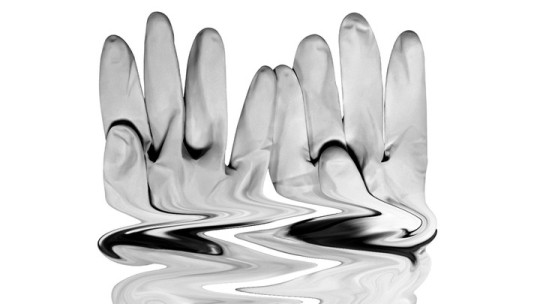
Shutterstock / Arsh Raziuddin / The Atlantic
Saskia Popescu’s phone buzzes throughout the night, waking her up. It had already buzzed 99 times before I interviewed her at 9:15 a.m. ET last Monday. It buzzed three times during the first 15 minutes of our call. Whenever a COVID-19 case is confirmed at her hospital system, Popescu gets an email, and her phone buzzes. She cannot silence it. An epidemiologist at the University of Arizona, Popescu works to prepare hospitals for outbreaks of emerging diseases. Her phone is now a miserable metronome, ticking out the rhythm of the pandemic ever more rapidly as Arizona’s cases climb. “It has almost become white noise,” she told me.
For many Americans, the coronavirus pandemic has become white noise—old news that has faded into the background of their lives. But the crisis is far from over. Arizona is one of the pandemic’s new hot spots, with 24,000 confirmed cases over the past week and rising hospitalizations and deaths. Popescu saw the surge coming, “but to actually see it play out is heartbreaking,” she said. “It didn’t have to be this way.”
Popescu is one of many public-health experts who have been preparing for and battling the pandemic since the start of the year. They’re not treating sick people, as doctors or nurses might be, but are instead advising policy makers, monitoring the pandemic’s movements, modeling its likely trajectory, and ensuring that hospitals are ready.
By now they are used to sharing their knowledge with journalists, but they’re less accustomed to talking about themselves. Many of them told me that they feel duty-bound and grateful to be helping their country at a time when so many others are ill or unemployed. But they’re also very tired, and dispirited by America’s continued inability to control a virus that many other nations have brought to heel. As the pandemic once again intensifies, so too does their frustration and fatigue.
America isn’t just facing a shortfall of testing kits, masks, or health-care workers. It is also looking at a drought of expertise, as the very people whose skills are sorely needed to handle the pandemic are on the verge of burning out.
To work in preparedness, Nicolette Louissaint told me, is to constantly stare at society’s vulnerabilities and imagine the worst possible future. The nonprofit she runs, Healthcare Ready, works to steel communities for outbreaks and disasters by ensuring that they have access to medical supplies. She started revving up her operations in January. By March, when businesses and schools started closing and governors began issuing stay-at-home orders, “we were already running on fumes,” she said. Throughout March and April, she got two hours of sleep a night. Now she’s getting four. And yet “I always feel like I’m never doing enough,” she said. “Like one of my colleagues said, I could sleep for two weeks and still feel this tired. It’s embedded in us at this point.”
But the physical exhaustion is dwarfed by the emotional toll of seeing the imagined worst-case scenarios become reality. “One of the big misconceptions is that we enjoy being right,” Louissaint said. “We’d be very happy to be wrong, because it would mean lives are being saved.”
The field of public health demands a particular way of thinking. Unlike medicine, which is about saving individual patients, public health is about protecting the well-being of entire communities. Its problems, from malnutrition to addiction to epidemics, are broader in scope. Its successes come incrementally, slowly, and through the sustained efforts of large groups of people. As Natalie Dean, a biostatistician at the University of Florida, told me, “The pandemic is a huge problem, but I’m not afraid of huge problems.”
The more successful public health is, however, the more people take it for granted. Funding has dwindled since the 2008 recession. Many jobs have disappeared. Now that the entire country needs public-health advice, there aren’t enough people qualified to offer it. The number of epidemiologists who specialize in pandemic-level infectious threats is small enough that “I think I know them all,” says Caitlin Rivers, who studies outbreaks at the Johns Hopkins Center for Health Security.
The people doing this work have had to recalibrate their lives. From March to May, Colin Carlson, a research professor at Georgetown University who specializes in infectious diseases, spent most of his time traversing the short gap between his bed and his desk. He worked relentlessly and knocked back coffee, even though it exacerbates his severe anxiety: The cost was worth it, he felt, when the United States still seemed to have a chance of controlling COVID-19.
The U.S. frittered away that chance. Through social distancing, the American public bought the country valuable time at substantial personal cost. The Trump administration should have used that time to roll out a coordinated plan to ramp up America’s ability to test and trace infected people. It didn’t. Instead, to the immense frustration of public-health advisers, leaders rushed to reopen while most states were still woefully unprepared.
When Arizona Governor Doug Ducey began reviving businesses in early May, the intensive-care unit of Popescu’s hospital was still full of COVID-19 patients. “Within our public-health bubble, we were getting nervous, but then you walked outside and it was like Pleasantville,” she said. “People thought we had conquered it, and now it feels like we’re drowning.”
The COVID-19 unit has had to expand across an entire hospital wing and onto another floor. Beds have filled with younger patients. Long lines are snaking around the urgent-care building, and people are passing out in the 110-degree heat. At some hospitals, labs are so inundated that it takes several days to get test results back. “We thought we could have scaled down instead of scaling up,” Popescu said. “But because of poor political decisions that every public-health person I know disagreed with, everything that could go wrong did go wrong.”
“I feel like I’ve been making the same recommendations since January,” says Krutika Kuppalli, an infectious-disease physician who works in public health. The last time she felt this tired was in 2014, after spending three months in West Africa helping with the region’s historic Ebola outbreak. Everyone who experienced that crisis, she told me, was deeply shaken; she herself suffered from post-traumatic stress upon returning home.
The same experts who warned of the coronavirus’s resurgence are now staring, with the same prophetic worry, at a health-care system that is straining just as hurricane season begins. And they’re demoralized about repeatedly shouting evidence-based advice into a political void. “It feels like writing ‘Bad things are about to happen’ on a napkin and then setting the napkin on fire,” Carlson says.
A pandemic would have always been a draining ordeal. But it is especially so because the U.S., instead of mounting a unified front, is disjointed, cavalier, and fatalistic. Every week brings fresh farce, from Donald Trump suggesting that the country should do less testing to massive indoor gatherings of unmasked people.
“One by one, people are seeing something so absurd that it takes them out of commission,” Carlson says.
Public health is not a calling for people who crave the limelight, and researchers like Rivers, the Johns Hopkins professor, have found their sudden prominence jarring. Almost all of the 2,000 Twitter followers she had in January were other scientists. Most of the 130,000 followers she now has are not. The slow, verbose world of academic communication has given way to the blistering, constrained world of tweets and news segments.
The pandemic is also bringing out academia’s darker sides—competition, hostility, sexism, and a lust for renown. Armchair experts from unrelated fields have successfully positioned themselves as trusted sources. Male scientists are publishing more than their female colleagues, who are disproportionately shouldering the burden of child care during lockdowns. Many researchers have suddenly pivoted to COVID-19, producing sloppy work with harmful results. That further dispirits more cautious researchers, who, on top of dealing with the virus and reticent politicians, are also forced to confront their own colleagues. “If I cannot reasonably convince people I’ve been friends with for years that their work is causing tangible harm, what possible future do I see on this career path?” Carlson asks.
Other scientists and health officials are facing the wrath of a nation on edge. Unsettled by months of stay-at-home orders, confused by rampant misinformation, distraught over the country’s blunders, and embroiled in yet more culture wars over masks and lockdowns, Americans are lashing out. Public-health experts—and women in particular—have become targets. Several have resigned because of threats and harassment. Others face streams of invective in their inboxes and on their Twitter feeds. “I can say something and get horrendously attacked, but a man who doesn’t even work in this field can go on national TV and be revered for saying the exact same thing,” Popescu said.
Some critics have caricatured public-health experts as finger-wagging alarmists ensconced in an ivory tower, far away from the everyday people who are suffering the restrictive consequences of their advice. But this dichotomy is false. The experts I spoke with are also scared. They’re also feeling trapped at home. They also miss their loved ones. Louissaint, who lives in Baltimore, hasn’t seen her New York–based parents this year.
“I feel like I’m living in at least three realities at the same time,” Louissaint told me. She’s responding directly to the pandemic, trying to ensure that patients and hospitals get the supplies they need. She’s running an organization, trying to make sure that her employees keep their jobs. She’s a Black woman, living through a pandemic that has disproportionately killed Black people and the historic protests that have followed the killings of George Floyd, Breonna Taylor, and Ahmaud Arbery. During the ensuing reckonings about race, “I’ve been pulled into so many conversations about equity that people weren’t having months ago,” Louissant said.
“Someone said to me, ‘I hope you’re getting tons of support,’” she added. “But there’s no feasible thing that anyone could do to make this better, no matter how much they love you. The mental toll isn’t something you can easily share.”
These laments feel familiar to people who lived through the AIDS crisis in the ’80s, says Gregg Gonsalves, a Yale epidemiologist who has been working on HIV for 30 years and who has the virus himself. “I have friends who survived the virus but didn’t survive the toll it took on their lives,” Gonsalves told me. “I’m incredulous that I’m seeing this twice in my lifetime. The idea that I’m going to have to fend off another virus … like, really, can I have just one?”
But Gonsalves added that HIV veterans have a deep well of emotional reserves to draw from, and a sense of shared purpose to mobilize. His advice to the younger generation is twofold. First, don’t ignore your feelings: “Your anxiety, fear, and anger are all real,” he said. Then, find your people. “They may not be your colleagues,” he said, and they might not be scientists. But they’ll share the same values, and be united in recognizing that “public health is not a career, but a mission and a calling.”
Despite the toll of the work and the pressure from all sides, the public-health experts I talked with are determined to continue. “I’m glad I have a way in which I can be useful,” Rivers said. “I feel like it’s my duty to do what I can.”
The Pandemic Experts Are Not Okay
1 note
·
View note
Text
Mark Fisher’s Capitalist Realism
A summary of sorts---
TS Eliot first made the point that the ability of culture to produce novelty is dependent on its capacity to store and transmit collective memory. Through its destabilisation of material conditions and its commodification (and hence alienation) of cultural products, capitalism undermines this ability. Consequently innovation becomes impossible. Since exchange-value is privileged over use-value, the assignment of value to a cultural product is dependent on this alienation—its removal from its lifeworld, its social context, its function and meaning to the individuals and communities who produce and use it, and its relocation within a universal system of exchange. This corresponds to a shift in the mode of encounter with cultural products from that of participation to that of spectatorship. Culture ceases to be a participatory forum for shared projects of self-narration, and becomes a factory for the production of aesthetic objects to be consumed in the passive mode.
Intellectual and political belief are increasingly consumed without participation. Anticapitalism becomes something consumable—this itself is an effect of capitalism (the villain of the Hollywood film is the evil corporation). What occurs is the overvaluing of belief at the price of action: the privileging of exchange-value over use-value in the particular case of the conviction. The role of the conviction as a form of social capital takes precedence over its function as a motivation to act. It becomes more important to perform one’s beliefs than to act on them. Expressing a cynical belief becomes a worse crime than acting cynically. ‘Being negative’ becomes the ultimate faux pas, while acting in a way that is insensitive, unkind, or flaky becomes barely worthy of comment.
Capitalist realism is a pervasive atmosphere constraining thought and action. Direct moral criticism is not effective, because it has successfully installed a reality principle according to which it is the best that can be done given the way things are. Any suffering present in the world is not caused by capitalism, but is a necessary part of the world which capitalism will supposedly minimise. To be threatened in this atmosphere capitalism must be challenged on its internal inconsistency. The existence of poverty is not a threat, as the reality principle declares it inherent to human nature. The existence of eco-catastrophe, however, is, as it is a necessary consequence of the infinite growth model inherent to capitalism. Two significant others are the mental health epidemic, which correlates almost perfectly with the spread of capitalism, and bureaucracy, which capitalism is supposed to do away with.
Political action today is muted by reflexive impotence: the sense that although things are bad there is nothing you can do which will make them better. The affective parallel is depressive hedonia: the inability to do anything other than pursue pleasure. The ubiquity of depressive hedonia is an effect of what Deleuze identifies as a shift from the disciplinary systems described by Foucault to even more decentralised, cybernetic forms of power. These societies of control work according to a principle of indefinite postponement, in which the apparatus of surveillance is internalised (the paternal superego is publicly denied at the same time as being internally assimilated). This form of control has the character of addiction—what is indefinitely postponed is satisfaction. Capital deprives us of our apparatus of self-narration, and hence our capacity to either identify with the past or to form visions of the future. The gap it leaves has the character of depressive hedonia, fuelling both the sense of reflexive impotence in the domain of politics, and addiction-shame cycles in the domain of pleasure.
In late capitalism all memory is reduced to formal memory, pure methodology and professionalism. Flexibility, and the ability to adapt to new circumstances are valued above all else: anything that ties one down—relationships, the family, nostalgic attachments to particular places—are factors that limit one’s capacity to flourish. The paradox is that the family is increasingly destroyed by capitalism exactly at the moment it becomes critical as a respite from the strains of living with permanent instability. These kind of tensions fuel the boom and bust cycles characteristic of late capitalism. Social systemic causes of mental health like these are difficult to see because mental stress itself has been privatised.
Control societies demand that their subjects express themselves, making affective as well as productive demands on workers. Doublespeak infuses bureaucratic standards: satisfactory grades are not actually satisfactory. These hidden expectations belong to the big Other (a concept of Lacan’s representing the public imagination in its ideological form), and the task of those existing within these structures is to both interpret and satisfy those expectations. The result the primacy of PR, that which is consumed by the big Other. The individualism promoted by capitalism amounts to the claim to have dispensed with the big Other, but the opposite is true in practice. One of the mechanisms of Deleuzian control societies is to trick us into identifying our own desires with those of the big Other, while officially the existence of the big Other is denied (no one can tell you what you should want). Cybernetic control circuits such as reality TV take our own present desires and feed them back to us as the desires of the big Other (a point made by Baudrillard).
In a society in which instability is the status quo, the ability to forget carries a premium. Since the Real is unbearable, even unthinkable, consensus reality becomes a tissue of inconsistencies. What counts as sane in this situation is the capacity to accept the incommensurable without question, as the dreamer does. This loss in narrative memory gives way to an emphasis on formal memory, or memory through methodology. At the level of culture this plays out as a reliance on familiar forms while the rapidity of change in content actually increases. The inability to create memories leads to an over reliance on established forms, and hence a stagnation in innovation.
Big Government serves as a bugbear to be blamed for its failure to act as a centralising power, precisely because of the centerlessness of global capitalism. It is not possible to vent anger anywhere else. The center is missing, yet we cannot stop searching for it. It presents a false dichotomy between centralised collective responsibility and individual responsibility, when the unthinkable truth is that responsibility lies with a diffuse impersonal structure.
Neoliberalism is characterised by the equation of self-interest with virtue: being happy is a moral duty. In tandem with the loss of becoming, self-interest collapses into fulfilment of presently accessible desire. Anyone with a pretence to occupy the position of the paternal superego is treated with mockery. Yet there is an awareness that this position is required—people know that fulfilling present desire undermines the capacity to fulfil deeper desires later. The problem is that at any given moment we may not know what what those future deeper desires are. And because we do not always (perhaps often) do not know what we want, some of our most profound desires are exploratory: desires for the strange and unfamiliar. What is in the process of being lost is the production of culture which provides this.
0 notes
Text
Religion, Pathology, or Symbolic Interaction? A Personal Narrative on the Role of Fandom in Identity by Tori Bloom
In 2014 I created my Youtube channel, toritalkstoomuch. Four years later, the channel has 423 subscribers and a total of over 400,000 views. I started this channel with the purpose of creating and sharing fan videos— videos that are inspired by some original source material. The videos on my channel, for example, mostly consist of edited clips from television shows. I also run several blogs where I share artwork, posts, videos, and works of fiction by myself and other fans, and I have a fanfiction account where I create and share stories about the characters in the shows that I enjoy. These are content communities, places where people can share their work with others, and they have become especially important in the production of fan culture (Campbell, Martin, & Fabos, 2017: 45). Television has become a source of creative energy for me and many others in online fandoms. However, it would be an oversimplification to say that fandoms are merely creative outlets. Through my personal involvement in fan culture, I have realized the influence that television shows and fandoms have on one’s sense of self, whether that be for good or bad. Through self-analysis and with the support of several scholarly sources, I intend to examine how television shows and the fandoms surrounding them create their own worlds. I will examine the idea that fandom is religion, and ultimately suggest that this idea is lacking. In order to properly understand fandom, I will look at my involvement with the television show Supernatural and its fandom, and I will analyze this relationship in light of Herbert Blumer’s (2005) theory of symbolic interactionism. This, I argue, is how television shows and fandoms shape the individual, not by acting as a religion but as a point of reference for a fan’s identity.
I created my first fandom-centric blog, on the website Tumblr, in 2012. It wasn’t until 2013, however, that I became involved with television show fandoms. The first television show fandom that I became involved, and perhaps the most influential fandom for me, was the one surrounding the show Supernatural. This show is about two brothers, Sam and Dean Winchester, who travel around the United States fighting and killing monsters, demons, angels, and other supernatural creatures. Despite the show’s roots in fantasy, the themes of love, family, self-acceptance, and perseverance that this show explores are integral to its following. Supernatural, like many television dramas, serves as a mirror of its intended audiences values, fears, and hopes (Campbell, Martin, & Fabos, 2017: 190). Personally, as a young teen coping with mental illness, anxiety, and my impending high school graduation, I was drawn to the character Dean Winchester because I saw myself in him. Dean is a character that has a low opinion of himself and shows disregard for his own well-being. However, he perseveres with the support of his family and by finding happiness in saving other people. I have often found, when I am sad or lonely, that watching an episode of Supernatural or a Youtube video about Dean helps me feel better because I feel as though I am in the company of a friend, or family. This phenomenon is not exclusive to me, however, but is a part of the way that fandom functions. Television shows create their own worlds and the fandom becomes a part of that world. Michael Jindra (1994) notes in his analysis of the Star Trek fandom that the show relies upon the myth of utopia as an achievable future to maintain its following. In short, it gives people hope. Supernatural relies on its own myths.
Supernatural is founded in several myths that maintain and shape its following, and at the core of these myths is the idea that fans are capable of changing the world or, at the very least, their world. This theme is perpetuated through its plot lines, firstly. Sam and Dean manage to stop the apocalypse, come back from death, face the devil, and more. They don’t do this alone, however. In fact, one of the plot lines revolves around a prophet writing books about them and selling them. The books gain a following and a fandom, and the fans in the show often assist the brothers in their goals. Even within the show, the fans are made to feel like they are a part of the Supernatural world, a clear wink and nod to the fans of the show. Outside of the show, the Supernatural fandom is often referred to by fans and the creators of the show as the Supernatural (SPN) Family, inspired by a quote from the show, Family don’t end with blood”. This phrase creates a connection between fans, and creates the illusion that the actors, for instance, are family. Another example is the Supernatural Hot Topic merchandise line called “Join the Hunt”. This phrase is used to make fans feel as though they are literally joining these characters, or the stars of the show, in their journey. This relates to our discussion of media friends in class on January 25th. My personal interactions with the actors are indicative of the concept of media friends. In several of my tweets from 2013 and later I address the actors as if they are friends, responding to their tweets with my thoughts on the latest episode or telling them that I was voting for the show in an award contest. At one point, one of the actors of a minor character in the show liked a tweet of mine and I immediately screenshotted it and shared it with my real friends, excited to have been noticed. Although the sense of family can be inspiring, the truth is that most fans aren’t actually close with the actors. When, when a fan like myself receives attention from a celebrity their place in the fandom world is validated. The myths perpetuated by the television show, and by the fans in the fandom, become real because at the time, that single like on my tweet made me feel like a part of the family.
Fans are also integral in creating the symbolic world that fandom exists in. Some of the literature on fandoms, and the fans within them, suggest that fandoms are a religious phenomenon, with a set of beliefs, origin myths, rituals, and institutions (Jinra, 1994). Jinra notes that some fans within the Star Trek fandom have married other fans and passed on their love of Star Trek to their children, much like a family might pass on their religious values. Jinra also doesn’t seem to be implying that the Star Trek fandom, as a religion, is necessarily unhealthy. In fact, he says that this is a stigma associated with fandom, much in the same way that religion faces stigma for producing overzealous followers. Supernatural incorporates biblical symbolism into the show as one of its core aspects. The angel, Castiel, was introduced in season 4 and his journey since then has been about his battle between his love for humanity and his sense of duty to God and heaven. Supernatural humanizes the heavenly. The show depicts God as an absentee father figure, Lucifer as a dejected son, and humanity as God’s project. Yet, despite the show’s religious themes, I would argue that labelling the SPN family, and other fandoms, as religious is a misrepresentation of fan culture. On the one hand, I have seen fans worship the actors and characters almost like religious deities. For example, Misha Collins, Castiel’s actor, refers to his fans as his “minions”. There are shared beliefs among fans, much like a religion, such as the idea that family transcends blood ties and that sometimes doing the right thing means abandoning one’s duty. Some Supernatural fans have married within the fandom, like the Star Trek fandom, and they raise their kids to be fans as well. Based on my experience, there is plenty of evidence to suggest that it is not just the Star Trek fandom that produces a quasi-religious following. However, I argue that the term religion is too broad to describe a fandom, and that it implies that there is some fundamental difference between fandom and more acceptable interests.
Joli Jensen (1992) attempts to fight the stigma that fandom regularly produces pathologically obsessed fans who are depraved, amoral, and animalistic. In particular, Jensen questions the dichotomy between high culture aficionados and fandoms. This is not to say that overzealous fans do not exist, but as Jensen notes, this is not indicative of a flawed tendency of fandom to create radical followers. The tendency to see fanaticism as pathology, she argues, comes from the distinction between high culture and common culture. This relates to our class discussion on January 25th, about nonelite culture, the culture of the masses, especially involving leisure and mass media. Those who are interested in high culture objects of desire, like paintings rather than posters, or a scholarly journal over tabloid magazines, are considered aficionados. Fan culture, in its association with the middle class, is deemed to be the product of inept psychological health. That is, the characters, stories, and celebrities are seen as a replacement for healthy, real, relationships. The fan, as opposed to the aficionado, is considered to be rowdy and has a tendency for excess. Jenson asks why society doesn’t typically associate pathology with, for example, professors and their loyalties to specific disciplines, antique collectors, opera buffs, or gardeners. She believes the division between the aficionado and the fan is an assumed dichotomy between the rational and the emotional. Reason is desirable and praised, and high culture is associated with it. Lower classes, on the other hand, are associated with emotion. Yet, aficionados share the same, or similar behaviors as fans, often displaying emotional attachment to their interests. She uses herself as an example, stating that her academic papers and reviews are not much different from fan letters, and that she collects memorabilia from people who are considered part of elite culture, like Patsy Cline, William Morris, William James, etc. Ultimately, she says that the difference is that fandom is associated with the less wealthy, the less educated, the deviant, the common, and the irrational. n Jensen’s opinion, the distinction between high culture and nonelite culture is arbitrary and that “aficionado-hood” is fandom in disguise. This, I would argue is a point of criticism for Jinra’s (1994) suggestion that fandom is religion. The practices of a fandom are comparable to religion in the same way that high culture is. We could refer to all avid interest as religious, but then the term would be too broad and would lose its meaning. I suggest, based on this critique as well as my own experiences, that fandom is a world of symbolic meaning that is shared between individuals.
Herbert Blumer (2005) defines symbolic interactionism as the fact that humans interpret each other’s actions and give meaning to them, as well as the objects around them. Through symbolic interaction, we come to understand ourselves, what is important to us and others, and how we fit into the world. According to this theory, objects do not have inherent meaning; instead, their meaning is interpreted by individuals based on their interaction with others in society. Fandoms, I suggest, are niche communities, scaled-down societies, with objects that have meanings which are unique to that community. For example, the main characters of Supernatural drive a 1967 Chevy Impala, which is a family car that was passed down from Dean Winchester’s father to him. The car itself is an object without meaning, but in the show it represents family, rebirth, and freedom. Sam and Dean have lost a lot of family in the show, including their father, mother, and close friends, but the Impala has been a constant in their lives. Because of this, the car has become an important symbol to the fans. Another example of an important symbol in the show is the anti-possession symbol. This is a tattoo that the brothers both have. It is a pentagram in the middle of what looks like flames. The pentagram has meaning in the Wiccan faith, but in Supernatural the original meaning is altered. The anti-possession symbol represents imperviousness to evil, much like the original pentagram, and also a family bond. I myself have a t-shirt with the Impala printed on it, as well as a backpack and a pair of sweatpants with the anti-possession symbol on them. These objects are full of meaning for the fandom not because the show gives them meaning but because those who watch the show interact with others, see the importance that these objects have for other fans, and interpret the meaning that the symbols have for themselves. The spreading of symbolic meaning is related to content communities in particular. For example, I have several Youtube videos on my channel that explore Dean Winchester’s symptoms of depression. Each video has hundreds of views, representing other fans who have watched my videos and have seen my interpretation of Dean as a character with a mental illness. I interpreted his actions this way with reference to my own mental health battles, as well as through my experiences with other fans with mental illness who identified with Dean. The fans who watch my videos are exposed to how I, and many others, react to and interpret Dean’s character and then they either choose to believe that Dean has depression or they interpret him differently. All fans are not alike, simply adopting the social meanings that have already been assigned to these symbols by other fans. Blumer says that despite the repetitive behavior of people in a given society that does not mean that interpretation is not occurring. In fact, the only reason people act in specific ways in situations, or think certain objects have a specific meaning to them, is because they interpret them that way. Furthermore, there are many situations that do not have an agreed upon social meaning, and in those cases the actions of people might not align.
The premise of Supernatural, was not what initially interested me in the show. I was introduced to the show by other fans who had blogs which I followed. Supernatural was a part of the online social groups that I was involved in, particularly because my online friends were involved with something called shipping. The word ship, in this context, is short for relationship, and it is a verb used by fans to describe the fact that they wish that two characters would be in a relationship with each other. In the show Supernatural the most popular ship is between Dean Winchester and a male angel named Castiel. The ship is commonly referred to as Destiel. This ship is a subculture of the SPN family. Through this subculture I became more aware of the effects of television representation on the real world. Besides writing fiction, fandoms often write analyses of the television show, either to predict what will happen in future episodes, to point out troubling stereotypes and tropes within the show, or to explain their interpretations of the episode. Thanks to the analyses of Destiel fans, I was introduced to the concept of queerbaiting. Queerbaiting is a term used to refer to a tactic used by producers of television and film to suggest a homoerotic relationship between two characters in order to draw attention but without the intention of ever legitimizing the relationship (Brennan, 2016). Analyzing and criticizing queerbaiting was a part of being a Destiel fan, something that differentiated us from the whole of the SPN family and which defined us as a group. We were critical of the techniques that the producers of the show used to maintain their following. Destiel fans have faced a lot of backlash from the SPN family, the producers, and there has even been disagreement within the subculture itself. Through my blog on the website Tumblr I was introduced to anti-Destiel fans. These fans are a part of the SPN family, usually, but they interpret Dean and Castiel’s on-screen relationship as strictly platonic and not an instance of queerbaiting. Within the Destiel subculture there is disagreement, with some wishing for the writers to introduce Destiel as a legitimized romantic relationship on the show and others arguing that, although they like the idea of the couple, a legitimized relationship would ruin the essence of the show, which is about family and, more specifically, the brothers. Despite the unique and often contradictory interpretations of the show, the SPN family comes together at times, sometimes enacting real social change.
The internet has given new power to social movements, and sometimes those movements begin, or are promoted by, fans. Although the movements that the SPN family has kickstarted are not quite as significant as, say, the Arab Spring, the internet and social media have been key in giving ordinary people the ability to start or become involved movements (Campbell, Martin, & Fabos, 2017: 263). In 2009, Misha Collins used his twitter account to ask fans for ideas for a charity. He ultimately co-founded a non-profit organization called Random Acts (n.d.), which is devoted to inspiring random acts of kindness across the world. Misha also began the Greatest International Scavenger Hunt the World Has Ever Seen (GISHWHES) as a way to gain support for Supernatural to win a People’s Choice Award, but it was also a means of getting people outside of their comfort zones (Miller, 2016). I have personally participated in this scavenger hunt because other fans who I considered friends asked me to join their team, and although the prize, a trip with Misha Collins, was desirable I competed just for fun. On the one hand, GISHWHES was originally a marketing scheme, much like we saw in the film Generation Like in class on March 27th. In that film, we saw how fans of The Hunger Games were encouraged to compete, and promote the show, in order to be labelled the number one fan of the series. However, GISHWHES was also about bringing fans together as teams and promoting the show’s values. In particular, the scavenger hunt’s strange tasks served as a reminder that it’s okay to be considered an outcast, or weird, because in the SPN family, you are accepted.
Fandoms are not just creative outlets, and they are not a place which necessarily cultivates pathology or acts as a religion. Based on my own personal narrative in my experiences with the SPN family, as well as the input of a few academic sources, I have suggested that fandoms epitomize Herbert Blumer’s (2005) theory of symbolic interactionism. The meanings behind certain symbols are interpreted by fans based on their interactions with others as well as what those symbols indicate to a person’s pre-existing sense of self. For me, Supernatural has encouraged my creative capacities because I believe in the values that the show, the actors, and the fans share. Fandom is diverse, and sometimes the show and its important symbols are interpreted differently by individuals. However, thanks to the internet and content communities, the shared meaning that fans find in a show can result in social change. Sometimes this social change is as simple as changing an individual, such as myself, and teaching them to become more critical of queer representation, and sometimes the social change is on a larger scale in the form of non-profit charities. Overall, fandoms are communities in which fans can view themselves in light of certain shared values. For Supernatural this shared value is, above all, the value of family.
Bibliography
Blumer, H. (2005). Society as Symbolic Interaction (S. P. Hier, Ed.). In Contemporary Sociological Thought: Themes and Theories(pp. 91-100). Canadian Scholars' Press.
Brennan, J. (2016). Queerbaiting: The ‘playful’ possibilities of homoeroticism. International Journal of Cultural Studies,21(2), 189-206. doi:10.1177/1367877916631050
Jensen, J. (1992). Fandom as Pathology: The Consequences of Characterization (L. A. Lewis, Ed.). In The Adoring Audience: Fan Culture and Popular Media(pp. 9-29). Routledge.
Jindra, M. (1994). Star Trek Fandom as a Religious Phenomenon. Sociology of Religion,55(1), 27-51. doi:10.2307/3712174
Miller, S. (2016). Rejoice! Misha Collins' Greatest International Scavenger Hunt the World Has Ever Seen is back. Retrieved from https://www.theguardian.com/lifeandstyle/2016/jul/29/misha-collins-greatest-international-scavenger-hunt-the-world-has-ever-seen
Random Acts. (n.d.). Our History. Retrieved from https://www.randomacts.org/history/
0 notes
Text
[SF] Matilda and Pandora's Box
[ XVI ]
It would seem that Matilda had forgotten where her duties lay when it came to boundaries, as she was often forgot to take off her lab coat when she was at home and it was due to this habit that she found herself alone after 30 years. Lifetimes ago she were nothing more than a feral child, left exiled from society for the protection of the public. Now Matilda was amused as the occasions arose to bask in her success as a public servant. From criminal to scientist. Matilda liked the ring it held, and knew her ancestors couldn’t argue that she wasn’t trying to make the most of the Genocide at least. Matilda avoided reporting to anybody and everybody: she had given up on trying to live in two-worlds when neither environments had accepted her in the first place. Matilda knew she were a recluse, and it were a topic of public discussion: her bachelorette status, and the judgements were cast by elder Indigenous Warriors who craved grandchildren. It was difficult to express how daunting and unsexy one feels when they have elders bragging around you aboot hypothetical pairings as though Matilda were a wild animal being breed intentionally, but considering her genome was categorized and archived as Federal US Property #562-6146: her “half-blood” status well known within the community. Being a Indigenous Warrior Princess means her ovaries were expected to barter for extra dowery (cattle, hides, labour) when and if that particular bridge were to be crossed. These types of Traditional concepts were outdated and Matilda hated them, but the reality was she had to consider all these aspects anyways because her race was near extinction according to the public records. It was all due to these vast cultural extremities and pressures that Matilda stood as a statue still single: left in limbo, and too bored to object.
When it came to general public knowledge of cultural practices Matilda knew that the dead-eyed savages were often too ignorant and or lazy as to try and even learn their own culture, and she fell wiser than to ever expect anything from them after a short time. Matilda had once attempted to explain her sadness to her procreational duties as a an Indigenous Warrior Princess to the Viking. After observation(s) of his lack of empathy she knew they could never be together: not only was he dead-eyed, grey-haired savage, but his heart seemed to make Matilda fall ill with grief and homesickness somehow. She told him of her experiences as a youth and her best friend growing up. His name was Buckles and he was the sole reason Matilda still managed to smile everyday. He died shortly after reaching adulthood, as he was eventually murdered in his sleep, stabbed to death on the Reservation. Matilda told the Viking how Buckles had been on his last home visit before being he was to be deployed to the battlefront on the oiled desert across the sea. It was this devastating loss that held Matilda hostage as she continued to fight the darkness that had followed her from Hades. It was this loss that would derail a student athlete to a path filled with more violence and self-destruction for a duration that what would seem like forever. It was this sadness that lead to the random day she found herself standing in the middle of basketball gym single, and finally worried she had wasted her life away playing a game when everyone around her seemed to be busy building lives and being happy. Matilda lived in a situation where science and basketball were often two separate entities of her life, and they held such a different dichotomy of personalities: holding up either masks became exhausting for Matilda. It would appear this was a grave she had managed to dig herself with her choice in profession and sport, so that fact left her with little room to object.
A pretense: growing up Matilda and Buckles were a mere pair to a trio: as the third of the squad was a soft-spoken fellow Indigenous Warrior known simply as: AJ. He was gentle and kind, as he was notorious for his comfortable sincerity and surrounding himself with female friends as companions: his sexuality was without title, and assumedly more female. In the Indigenous Warrior culture Matilda had been raised to understand that there is a difference between the genetic build-up of male/female structure and the emotional/psychological aspects. The latter is called Two-Spirited: which just means the person has an invisible personality trying to express dominance, expressed through hyper-masculinity or hyper-flamboyant demeanors every second of every day. It were as though it could be seen as a cup, which is overflowing with energy until the two-spirited person to decides themselves which person they feel most comfortable presenting that day. It was often questioned to AJ and if he were a Two-Spirited individual, but he was so nice that it never seemed to matter. As a late teen Matilda had found that AJ had been murdered at drunken house event on the Reservation and the culprits were none other than the dead-eyed savages that had visited the sovereign lands for the night. This knowledge destroyed Buckles and he began to spiral as he drank his sorrow away with the aid of the poison(s) of Hera, and Matilda lost control of any sort understanding of how to help. Nothing could have prepared either of them for what they were left to learn next. Following the funeral, services and criminal investigation: it was discovered that AJ had been sexually assaulted on the night of his murder, and that the assault had occurred to his body after he had died and his body left on the floor. That image and those actions were all that Matilda knew of the dead-eyed savages, as they proudly roamed her land aimlessly. To this knowledge Matilda knew she could never trust an American and as she often stood frozen in horror as to her disgust in the local invaders on the daily. It would be years of drinking the anger away for both Matilda and Buckles before they both landed back on their feet together: she a scientist and he a soldier. It wouldn’t long after that: the two had weakened their own capabilities with their grief, and both agreed they were ready to let go of the destructive contention held for the dead-eyed savages who remained unwelcome on their land. It was this story that held both Matilda and Buckles hostage for far too long, as they knew justice for AJ would never be served. It was this great loss to the community that would further devastate an entire Nation, when Buckles was murdered less than half a decade later. Matilda was now left alone, as the Indigenous Warriors left their posts without Buckles to lead them: she was unprotected once more with no one who cared enough to remind her that she and her smile were more than just an object.
With what little knowledge Matilda had procured on the dead-eyed savages first hand: it wasn’t really a surprise that she were an agoraphobic. It would take traveling overseas before Matilda manifested the understanding that it was not people she crippled her with fear: it was only the dead-eyed savages that had conquered her land that she feared. She felt rage shaking her body as with the many stories of horror that she were often gifted to her by her fellow Indigenous Warriors. It would seem the dead-eyed savages often made/make sport of raping women and children on sovereign lands and return to the their protected land ruled by the perverted Boar to avoid criminal charges. The sovereign laws didn’t pertain to these dead-eyed savages, as they didn’t have prisoner of war numbers like Matilda and her Indigenous Warriors, and they often used that advantage to defile anything, and everything as they pleased. It was their lack of social or empathy skills that made Matilda annoyed by her emotional commitment to the Viking that she dearly missed. It was this pairing that also brought her name up for public ridicule with her Indigenous Warriors, as she was still a crowned Princess and her genome one of the rarest in the world. The idea of dictation of procreation wasn’t glamorous in the slightest, and was the equivalent of having a partner sign a contract of potential binding in the far future. Matilda often worried that the seemingly fake rules that only applied to the Indigenous Warriors is what was making them so sick. The obsession with blood-quantum ruled their lives for generations, and the end result seemed to be annihilation no matter what way the numbers were crunched. Scientifically speaking the Indigenous Warriors couldn’t continue up the bloodlines for another three generations without potentially embedding inbreeding into their genome. Matilda was not aboot that (unlike the Questionable Queen across the sea), but talking of such taboo topics of understanding with Indigenous Warrior elders often lead to an infinity of arguments and Matilda being belittled for being “childish”. It wouldn’t be until after Matilda met the Viking that these elders would finally begin allowing her to speak on the matter, as they saw that Matilda understood it was only an honorary task to preserve the genome of Indigenous Warriors, feeling threatened that they may no longer have a say on her actions.
Matilda had never had such conversations with the Viking, and their relationship was only expressed through platonic friendship and the acknowledgement that their cultures were too different. Matilda had a culture, and the Viking had none as a dead-eyed savage….meaning the two could never be together. It took two years of Matilda following the Viking and projecting the largest presence of burden unto him until she finally left his side to continue her task of cultural preservation. It took two years before Matilda saw that he held potential to ruin her emotionally beyond repair with his ignorance. It took two years for her to wise up to his games and leave with the realization that he had become a burden to her ability to succeed. She left him sitting in a gymnasium brewing in his anger towards himself, and she was left with only the memories of unending infatuation and pride that he exited in the world and that she had finally found him. The Viking would be the one Matilda would call her husband for the next half-decade without hesitation, but in a sense that she felt annoyed and responsible that he was lost somewhere most likely saying weird shit in public (which I guess is just called marriage to other married people). They were an old wedded pair that bickered and constantly picked at the other...seeing who would start raising their voice first, and without one another each of them could be seen as a handful to the world. She often thought about him whenever romantic music hit her ear, and giggled to herself at her memories of the Vikings socially awkward attempts to initiate flirting. She admired his ability to say what was on his mind or instruct others with his booming voice, and often caught herself looking for his grey hair and blue eyes amongst the other dead-eyed savages. Matilda missed him every second of the day for no reason, and without him by her side she often felt incomplete or insincere, as though the world was watching them and knew they were apart for the moment. It would seem that just meeting him had given her guilt to her past, and she often worried he saw her not as a person, but only as a character created only to exist for his amusement. It had gotten so bad that Matilda was forced to move away as she ran away if only to remind herself that she were a real person once more. With no claim to her heart and no culture to call his own: the Viking was finally left with her absence and no room to object.
Matilda was given nothing more than the understanding that her elders were weakened by sickness and conquered once and for all by the dead-eyed savages that now held them captive. Matilda would digress her anger but forced to act as though she was held responsible for their actions in the past at all times. They spoke of her obligation to preserve their race, as though it were a last beacon of hope and they stood confused by history, forced to witness the finalization of the Indigenous Warrior Genocide. Matilda wasn’t egotistical in terms of needing to fulfill her royal duties firsthand and had even tried to donate her eggs at some point. She felt awful being stingy when there were legitimate couples straight and two-spirited alike who longed for their own children, but were unable to conceive. Now that science had caught up to Matilda she knew how to make her contributions in more way than one as a Princess. Even if she decided to continue on her life as a single Indigenous Warrior Princess: she knew that is was not up to these elders to dictate her on her choices...even if she had signed a binary paper contract as a naive young girl. These elders were yet somehow the same ones that had opened Pandora's Box when they assimilated their children instead of running for their lives in the first place or asking for help from the world. Matilda knew that it would never happen again, as she now told the white-men to their faces that she were tired of being fetishized and her trauma as a surviving raped infant being the one thing that Americans avoided, since it was a dead-eyed savage who had once penetrated her as a unarmed one and half year old. It felt as though she had been brought to this world and raped within her first two years, being told it was her own fault and curse for her fathers absence at her arrival at birth. Her bastard status often mocked by the Indigenous American Warriors who knew her second father(grand-uncle) that was now dead, having had his own body self-destruct from leukemia during her childhood. This passing lead Indigenous Warriors to make her the butt of every joke, as they told anyone who would listen how she was possibly the worst Princess out of all the Indigenous Warriors. Matilda missed her second father in a fashion that's makes her appear rebellious at all times, and it would seem that it showed that she had once been loved unconditionally, as her joy still managed to give others hope. She would spend her life crediting the decorated veteran and his expectations of her during times of her success, and avoided her Redwood forest without him. He was the only Indigenous Warrior who had ever went out of his way to endlessly defend her from the masses who questioned her aloof smile. He had given her permission to travel to the stars as a kid after she had quipped that she believed that she could do it, after she had been fixated having watched a skyboat explode. He hadn’t mentioned the difficulty of the rigorous process, or how few women of colour were allowed to leave for the stars: the two responses she’d get endlessly after his passing. It was her bond to this old Indigenous Warrior that kept breath in her lungs, and tears in her eyes. Without her second father she had become weary from the doubt cast upon her from the dead-eyed savages and even from her fellow Indigenous Warriors. She had no way to tell the world how she endlessly hurt, or what it meant to be an Indigenous Warrior Princess that was seen as a joke. She lived off of memories of the days where her papa had walked by her without speaking and raised her chin whenever she held bad posture, or the small single roses he left on her bedside table on occasion. He commanded her to understand her importance as he spent her childhood fighting her battles simply so she could smile in peace. He corrected strangers who attempted to parent her, and warded them off as he informed them “she’s fine...let her read” whenever they noticed she avoided human contact at all costs by reading any book she could find. He had watched her dance in front of the masses wearing her Traditional Princess attire and never mentioned that the dead-eyed savages had once kidnapped him and forced him to assimilate under their legally enforced dogma. Instead he quietly stood by her side and showed Matilda the places of their ancestors in the Redwood trees, and gave her the best years of Christmas a kid could ever ask for. He taught her the importance of accountability and honesty and would argue with her when she questioned what was to be considered just. He let her wear her boys clothing and encouraged her competitive behavior: no matter how extreme or comedic her behaviors were. It bothered Matilda when people called her by her Yurok name, as they still managed to make fun of her for being named Sir. It was only her papa who could get others to say her name right with a tone meant for a Princess, or throw back witty commentary about how Matilda could beat their sons, as she were mighty in spirit and dressed to the occasion. To these memories Matilda knew that these dead-eyed savages were weak whenever they doubted her, and often took advantage of how little they thought of her simply by ignoring them and by succeeding. Her papa had said to mind her own business whenever she invested in others who had no actual say in her life, and he would say so few words that Matilda had been forced to listen intently at the time. Matilda couldn’t have ever understood as a child that the link between them was the generations that the US and dead-eyed savages had actively worked to try and keep them from existing, and yet they both had managed to be born and protect their Redwood forest. Matilda now lived in her papas shadow and worked towards her goals to operate the false star that orbited the Earth, as if only to prove to her papa that she loved him for believing in her when nobody had ever asked him to. She lived if only to tell the world what had happened soon after her elders had learned English and began praising the false God, and to give warnings of the dead-eyed savages to her fellow Indigenous Warriors. Their Genocide had been implemented because of a God that not even the dead-eyed savages worshipped anymore and cultures they worked endlessly to forget. Matilda ran every day or occasionally in her dreams: running in spite of them all. She sat single and focused on her career but distracted by the false hope that there could be a day in the potential future: when she might tell the Viking of the entirety of her complex culture. Matilda wasn't sure how to explain how empty she felt in her heart without him, but still felt obligated to the idea that she were in danger and that she wasn’t supposed to stop running. The only way to fight off her heartbreak was to remain in motion, and left crying endless tears in the quiet evenings when she was left alone with her own thought. To this new challenge of healing: Matilda felt her weakening heart beat slowly as it struggled to remain active.
submitted by /u/spacecaptainbrooks03 [link] [comments] via Blogger https://ift.tt/2FrA5w0
0 notes
Text
Planetary Management Worldviews and Stewardship Worldviews
As a direct heir and a natural extension of Judeo-Christian thought, modernity envisages the salvation of humanity in the progress of science and technology. However, this progress is defined as the continuous growth of the domination of men over nature. An emblematic figure of this dichotomous vision, which strictly separates the human being from the nature and which assigns to the first the ambition and the duty to enslave the second, is that of Francis Bacon, who writes in the Novum Organum (aphorism 129) that science’s ultimate goal is to « to establish and extend the power and dominion of the human race itself over the universe »[1]. Rene Descartes conceptualizes this radical distinction between man and nature through the metaphysical basis of his theory of substances, distinguishing the thinking substance, specific to man, from the extended substance, simple material that the thought must informe. For the philosopher, the ultimate goal of human development, through scientific and technical progress, would be to « render ourselves the lords and possessors of nature »[2].
The role of master and conqueror conferred to the human being in Judeo-Christian thought and his secularization through the modernist faith in the human power of domesticating nature are the conceptual roots of the Western development model. While protection of nature has long been associated with a concern for the benefits that human societies derive from it, we are now seeing more and more exclusive attention to these benefits, both in scientific research and in public policies dedicated to biodiversity conversation. It is therefore necessary to question the effects of such an inflection.
Is it essentially a change of vocabulary and rhetoric with little effect on reality or is there a real transformation of logic and object? Do conservation of biodiversity and protection of ecosystem services refer to convergent and potentially interchangeable objectives, or is the shift to a service logic likely to undermine the necessary commitments to biodiversity?
In the ecosystem services approach, nature is considered only by the benefits that people derive from it. Therefore, we shall describe a shift from a biodiversity-centered perspective to a perspective centered on ecosystem services, as the effective instrumentalization of nature. This paradigm shift confirms the idea that the value of natural entities would only be relevant to their utility, direct or indirect, for human beings.
« From the fact that there is no normative definition of the natural state, it follows that there is no normative definition of clean air or pure water — hence no definition of polluted air — except by reference to the needs of man. »[3]
In People or Penguins: The Case for Optimal Pollution, published in 1974, Baxter discusses the relationship between the use of resources as a necessity for survival and pollution. According to him, no human community can present itself as non-polluting. Thus, according to him, pollution must be accepted, despite its harmful effects on the environment, provided that it increases the happiness of the majority of the human population. Baxter is the archetype of the utilitarian anthropocentric. Its main proposal is as follows: in order to solve the environmental crisis, we should not aim to obtain clean air or quality water but rather set ourselves an optimal level of pollution.
The relative preservation of our environment is not a problem since humans are highly dependent on nature, it is thus in their interest to preserve it. Baxter rejects any value to the natural world regardless of human interests. Its ethics does not exclude private altruism, but it rejects the possibility of harming humans to ensure the well-being of nature, the measure of this being the equilibrium point named the optimal level of pollution. Yet, the World Health Organization estimates that 4.6 million people die each year from directly attributable causes to air pollution. The investment in the fight against the latter is a public health issue, insinuating that this money could be better used in the construction of hospitals is therefore a mistake on the part of Baxter. The decline in mortality is, de facto, a direct return from investment in environmental protection.
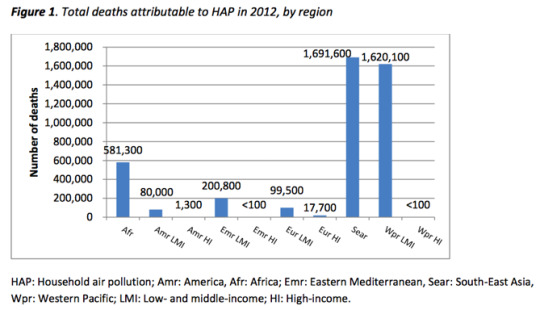
Given the imperative of economic development that characterizes the contemporary world, economic efficiency is often considered as a determining factor in private practices as well as in public policies. As a result, many researchers and conservationists have considered that the most compelling way to advocate for the protection of biodiversity is not only to highlight its contribution to human well-being, but also to demonstrate economic interest. These attempts then operate a second reduction. After having reduced nature to its instrumental values, it is a matter of quantifying these values in monetary terms. The instrumentalist reduction is then coupled with an economic reduction. If there are rights and duties only between men, how can we feel obliged to protect our environment?
If the human being and the natural environment are interdependent and require to be respected both, the limits of strongly anthropocentric positions are apparent, and a certain porosity between anthropo, patho, bio and ecocentric positions exists, especially in the practical domain concerning public policies and individual and collective action: the fight against pollution, a reforestation program or the preservation of spaces can be implemented both in the name of an anthropocentrism concerned with future generations and a bio or ecocentrism defending respect for endangered species and ecosystems. It is in this sense that some authors, such as Bryan Norton (1984), advocate a pragmatic approach that allows people with different postures — himself claiming a weak anthropocentrism — to work on the same practical issues.
Based on the common sense argument that the instrumentalization of nature does not necessarily lead to the destruction of it, a whole pragmatic reflection has developed, that challenges the desire to base environmental ethics purely on intrinsic value. It is accused of using heavy metaphysics and leading to sectarian positions. The quest for intrinsic value can be seen as the search for a unique, monistic theory of value. It is all the less likely to be accepted by as many people as it implies a metaphysical questioning, a search for the foundation. To this monistic and solitary vision of value, pragmatists oppose a pluralistic and relational vision. Why, to affirm the value of a forest, should one stick to one's "intrinsic value »? For example, according to Bryan Norton, a weak anthropocentrism based on thoughtful and not merely felt preferences is sufficient to warrant the protection of wilderness as a moral resource. For him, the individualism / non-individualism dichotomy is more decisive for the foundation of environmental ethics than that which is played out between anthropocentrism / non-anthropocentrism, since « no successful environnent ethic can be derived from an individualistic basis, wether the individuals in question are human or nonhuman.»
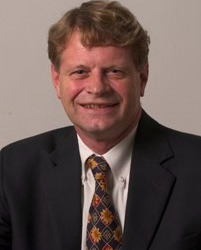
Bryan G. Norton, School of Public Policy at the Georgia Institute of Technology.
Norton's writings testify his willingness to challenge the practical relevance of all of this speculative problem in the name of two types of arguments intimately linked to one another, arguing, on the one hand, the disastrous effects internal quarrels between environmental ethicists that makes their speech politically inaudible and paralyzes their concerted action and, on the other hand, the particularly sterile nature of these debates insofar as the major concept of human interest is left in a state of extreme indeterminacy. We thus come to no longer be able to distinguish between a utility which is satisfied in the immediate consumption of the goods of nature (raw materials, agricultural products, etc.), and a utility which supposes the preservation of the useful object as a whole, as conservation is a condition for the satisfaction of human interests
Norton's opinion on this point is that nature protection programs are perfectly justifiable from the point of view of a sufficiently broad conception of the anthropocentric instrumental value. Better still, it is important to recognize this environmental problem as an undeniable practical superiority for at least two reasons. On the one hand, the invocation of the anthropocentric instrumental value corresponds, in fact, to the most widespread mode of justification among environmentalists, and constitutes in this respect an immediately common space for interlocution within which debate can take place. On the other hand, by succeeding in neutralizing the axiological controversy between intrinsic value and human utility, the use of the anthropocentric value in the broad sense allows, in this way, to leave to the subjectivity of each one the choice in favor of different philosophical options, and thus to shift the debate on the ground of the rational modalities of environmental action.
In reference to these pragmatist and pluralistic options, Norton has striven to develop its own theory of sustainable ecosystem management. Norton considers that the problem of the morally acceptable conditions of sustainable development needs to be posed within the framework of a theory of intergenerational justice. He also believes that the differences between the currently available models of sustainability come essentially from the way in which the problem of determining the obligations incumbent upon the future generations is posited, and how it is solved.
The difficulties encountered in attempting to overcome the usual limits of morality to include all living beings or the biotic community, explain that attempts have been made to develop an environmental ethic by challenging the rigidity of the distinction between intrinsic and instrumental value. It is not necessary to contrast the intrinsic value with the instrumental value, it is enough to show the diversity of the instrumental values. Utility is not only immediate, or material, it must be taken into consideration that there is a future, and future generations, that there are selfless interests, as are aesthetic or cognitive interests. To consider nature as a set of resources is not necessarily to destroy it: nature no doubt supplies us with goods (raw materials, agricultural products, etc.) that we consume by destroying them, but it also provides services (pollination, recycling, nitrate fixation, homeostatic regulation), without which we would not have access to these goods, and that it is in our interest to keep in activity, in no way to make disappear. The same thing can be said of the cognitive or aesthetic interest for nature.
If scientists, like systematicians, need hardly any elaborate environmental ethics, it is because in defending nature, they defend their object of work. In the same way, those who admire the beauty of nature, or find in the sublime a spiritual experience that elevates their soul, undoubtedly value a subjective experience of their own, but in doing so, they need a natural untouched without which this experience could not take place. Nature conservation programs are perfectly justifiable from an anthropocentric point of view, and one can, as Bryan Norton does, feel that this is the most common form of justification for environmentalists. Reductive anthropocentrism denounced by ecocentric ethics, one can thus distinguish an expanded anthropocentrism (sometimes called "weak") such that to value the man does not necessarily imply to devalue the nature.
The notion of ecosystem services reinforces and generalizes an anthropocentric posture that should nevertheless be questioned. In my opinion, economic evaluations of these services reduce the diversity and complexity of human values to the single market metric. Indeed, the commercialization of nature accentuates the injustices produced by the neoliberal logics of exchange based on individual property, markets and financialization. At the moment when the demonstration of the failure of a system becomes irrefutable, everything happens as if the environmental question could be integrated into this system without fundamentally calling it into question, being content to make development sustainable and the capitalist economy « green ». It is certainly a great threat to nature, but it is also and certainly more for human societies.
Questions
By reinstalling man as the center of values, pragmatists do not abandon the concern for nature. But do not they turn away from what can be considered as the main teaching of non-anthropocentric ethics: we are not alone in the world, non-humans also count, for themselves?
Pragmatism: ecological awareness or capitalist stratagem? (cf. conclusion)
Word Count : 2019
Bibliography
Bacon, Francis, and Joseph Devey. Novum Organum. New York: P.F. Collier, 1902.
Descartes, René. A Discourse on Method. North Charleston, SC: CreateSpace Independent Publishing Platform, 2016.
Baxter, William F. People or penguins: the case for optimal pollution. New York: Columbia University Press, 1974.
Norton, Bryan. "Environmental Ethics and Weak Anthropocentrism." Environmental Ethics 6, no. 2 (July 1984).
0 notes
Text
The Workplace Worries of an Abuse Survivor
odškodnění bolesti Soon soon after a new staff started out at a local insurance coverage firm, the veteran staff associates agreed that he was "quite nice" and "would go out of his way for you." They knew nothing about what motivated these behaviors in his workplace nor the actuality that he subconsciously considered it as his household-of-origin. The floor flooring serves as the basis on which all other people in a constructing relaxation. So, also, does a person's upbringing-except that it becomes the foundation upon which his existence rests. If it has entailed abuse, dysfunction, or even alcoholism, it is weak and can easily crumble, usually necessitating a man or woman to compensate for it with inflated and often practically scripted behavioral characteristics other individuals fall short to understand. He sees the planet the way no other individuals do. This foundation usually involves a person to camouflage his deficiencies by portraying an impression opposite to that which he feels or believes about himself. He may well, for instance, be perceived as getting outwardly friendly and quickly acquiring together with some others, but inwardly he churns with fear and insecurity, participating in silent conflicts with other people as he chews on the factors they do that retrigger his personal untolerated types. Insecurity, anxiety of errors, an inability to perform the features for which he thinks he is incapable, and inside worker conflicts may possibly spark recurrent and spontaneous career resignations. Conversely, this continual will need to mask these insecure elements can change a person into the tremendous-worker, as he functions out his childhood need to have to obey and comply with each rule and for this reason prove his functionality and self-value by volunteering for assignments other people keep away from, overworking and -attaining, men and women- and manager-satisfying, doing work additional time with or with no additional compensation, assuming elevated duties, and even getting get the job done residence, in the process turning into the quintessential "organization male" without having some others ever comprehension his motivations. Ironically, this overall performance and loyalty may possibly lead to ever-increased positions for which he is not emotionally equipped, resulting in him to compensate for and cover up the ever more terrified inner thoughts with even better dedication and hard work. In their serious, these endeavors can exchange his nonexistent character till it gets his individuality, as he is remodeled from a human staying to a human performing. Most of his misbeliefs about his inadequacies end result from his constantly replayed crucial mother or father voices, which echo the authentic, but seldom happy reception of his achievements through his upbringing. Like a computer system, his mind can only return what has been downloaded into it. Very long striped of boundaries at residence, he is easily utilized and exploited by coworkers and supervisors alike. As a target cultivated by his upbringing, he can be taken gain of and knows no other suggests of survival. If his actions and responses could be voiced, they would most likely say, "I am a lot less than you, not worthy, and flawed. So do what ever you want and use me even so you see in shape. I will by no means protest or complain. This is what I am utilized to." But, until he has started restoration or treatment, he is ironically unlikely to be in contact with this voice or even realize why he submits himself to this kind of working with ailments. Aside from the reality that he has been so cultivated, he subconsciously sights these people as current-time reps of previous-time moms and dads who were being never happy with what he did. The additional, in fact, that he submits to such conduct, the considerably less worthy he feels, only supporting his misbelief. Very similar place of work incidents unknowingly regress him to his childhood when he was powerless and his mothers and fathers have been perceived as flawless and incapable of mistake, creating the fundamental misbelief that any mistreatment of him was because of to his personal shortcomings and not their individual. To compensate for this dysfunctional and most most likely abusive upbringing, he adopted nearly scripted roles, which he might subconsciously continue on to act out in his work venue, as the only believed strategies of survival. The initially of these is "hero," whose origin and function are perhaps the most challenging to decipher, given that he gets the "excellent human being," undertaking according to the guide-recommended laws. Certainly, he may symbolize the typical by which some others can only aspire. He is impartial, demands no just one, is generally the a single other people talk to concerning methods, overachieves, and is flawlessly reliable and dependable, hence masking the inferior and insecure emotions that motivate him. Considering that the current to his emotions is small a lot more than a trickle, he turns on the juice to the successful side of him as if it ended up a gushing fireplace hose, unsuccessfully making an attempt to exchange a single with the other. Skating on slender ice, he makes an attempt to do every thing in a excellent manner until eventually his pursuits turn out to be the equal of his self-value. But any error may possibly shatter this fleeting experience. This work immersion, on top of that, might be the totality of his lifetime. Whilst others may conduct within organization specified parameters to receive their paychecks, for case in point, they most probably also have families and other activities to whom and to which they return in the night. The hero may well not. Riddled with childhood-originating resentment, the "scapegoat"-the 2nd function-was created by the individual who was continuously forced to settle for the blame and load his moms and dads or even other siblings would not, therefore persuading him to acquire accountability for the problems or infractions of other individuals now. So acclimated is he to carrying the weight of them, in actuality, that he may subconsciously create the circumstantial catalysts which impose the burdens on him, enabling him to act out his many related childhood episodes and then lament about their unfairness and injustice. While the scapegoat passively plots his childhood reenactments, the "dropped baby"-the 3rd position-silently slinks from them, as he experienced throughout his developmental several years, now barely current. Perceived as an unnamed, persona-devoid silhouette--whose variety, at occasions, might seem to be small much more than the shadow it reflects on the wall and just as dimensionless--his identification may be diminished to small much more than, "What's his name?" Unfortunately, he is regarded by his absence or recognition. His nonexistent presence generally displays how he feels about himself inside of. "Laugh, clown, chortle" can be used to describe the fourth position, the "comedian" or "clown," but, in both equally scenarios, that laughter is most probably the veil that camouflages the person's internal sadness. Tapping into his spontaneous capacity to find humor in most conditions and entertain his coworkers, the youngster-turned-adult comedian turns lemons into lemonade for other folks, transforming personal inside unhappiness into exterior joy for them, enabling him, in the method, to achieve a perceived degree of safety by weaving a net of acceptance all over him. These four roles, all adopted as protection mechanisms towards childhood risk, evolve into a lifetime of survival traits aimed at self-security, given that the human being once all over again subconsciously sights the world as an extension of the just one recognized in his household-or-origin, forcing him to pave a route with the strategies that proved risk-free for him. Therein lies the motives powering an abuse survivor's behavior in adulthood and the problems he provides to the place of work-his virtually programmed, but unchallenged belief that the grownup planet is a transplant of his childhood one, leaving him fearful and hypervigilant of father or mother-resembling and -retriggering authority figures. Regardless of his ostensibly bonding attributes and actions, this kind of as his perception of humor, socializing at lunch, and holding the very same or similar-amount titles as his coworkers, he constantly feels as if he is not aspect of them, as if he were on the exterior looking in, mainly because bodily existence does not always ameliorate or replace psychological absence and isolation. A person can, in fact, be in a space with a dozen or much more other individuals and nevertheless sense by itself, considering that his distrust of them renders it difficult to join with them on a social and consequently soul stage. In truth, sensing a person's length and psychological disconnection, other folks might exclude him from after-work or weekend social engagements, as if he silently conveys his lack of desire to be a part of them, but this can ironically leave him harm and even more solidify his misbelief that he is not deserving of their friendship. Accumulated, but unresolved childhood infractions, abuses, and traumas can retrigger and rekindle at work venues, as folks and incidents replay in the person's brain, progressively "eradicating" him from the present and immersing him in his past, his mirror neuron-saved tapes trying to persuade him that the setting and those in it are not safe and in some way detrimental to him. So highly effective can these negative emotions and fears turn out to be, in truth, that they may ultimately management him till he either releases them by suggests of spontaneous anger outbursts or resigns. This, in essence, is an expression of the basic adult-child dichotomy, as the previous wants to be aspect of the planet, functioning as a experienced human being, working, and earning money, whilst the latter, mired in the internally fleeing internal youngster, seeks protection without having worry for the monetary means to assistance him. Each are enthusiastic by the need to have to survive, but on diverse amounts and from age divergent perspectives. Simply because of frequently replaying traumas in an abusive survivor's head, he can neither inquire for help nor defend his steps, and is frequently subconsciously decreased to the powerless and overcome kid that spawned his original debilitation. Almost nothing is more terrorizing than a private confrontation with an additional, because it transports him back again to the countless-and, most very likely, dangerous-ones he previously endured. During that powerlessness, furthermore, he was in no way perceived as acquiring been on the right or triumphing aspect. Paradoxically, when this kind of a person is appointed to positions of manage and superiority as an grownup, it offers a diploma of basic safety for him, considering that it elevates him to the remarkable or winning role when represented by his abuser. Instead of currently being belittled and overpowered as a youngster, he now feels that he can exert these effects on other folks, and therefore feels more robust and safer. In reality, this kind of person, to higher or lesser degree, can be categorized as the usually-labeled "management freak," since he grew up in a chaotic natural environment wherever deficiency of handle led to his detriment and he now strives to regain it with these kinds of a purpose at his task. In essence, he employs the identical misdirected technique his abusive moms and dads did at his place of employment. Conversely, when he does not suppose this sort of a role, and is thus psychologically regressed to the interior child stance, he is decreased to getting whatsoever will come his way, whether or not it be extra functions, responsibilities, or duties that are not essentially paired with enhanced compensation, since he feels way too unworthy to refuse them. Ironically, they could signify an intangible "advantage," which most very likely only exists for him-particularly, proportionately assuming more of a workload transforms him into another person who is preferred, who is seen as an ally, increasing his degree of security. This summary is much more sensible than it may possibly 1st surface to be, due to the fact abused kids believe that they are noticed a lot more as enemies than "pals" to their mothers and fathers-that is, people who by some means get in the way, are burdensome, and not necessarily wished. Propelled by these unaccepting major caregivers down a route toward perfection in his tasks-all in an endeavor to compensate for his "imperfections" and elusively get that seldom provided adore--he might translate this dynamic to the office, finishing work, capabilities, and stories in a exact and thorough method, and then anticipating, but failing to note, very similar performance in his coworkers. Eventually adopting the identical intolerance for their shortcomings as his moms and dads did for his, he only re-sparks the cycle in his personal existence, if he has not currently carried out so with his possess children at house. This situation could evolve until eventually it generates the workaholic, or the man or woman who replaces his self-value with accomplishment- and monetary-worthy of. As an abyss devoid of optimistic feelings, he finds it hard to extract pleasure from friendships and relationships, and his immersion into function enables him to avoid inspecting his unexpressed hurts. His work atmosphere may possibly be far more of an extension of his house atmosphere than imagined, as the task hopper, constantly seeking new work venues for the ostensible purpose of landing "that perfect occupation," may subconsciously be in research of "that best home"-or the just one he by no means had, furnished that he can believe in the "family member" personnel residing in it.
0 notes